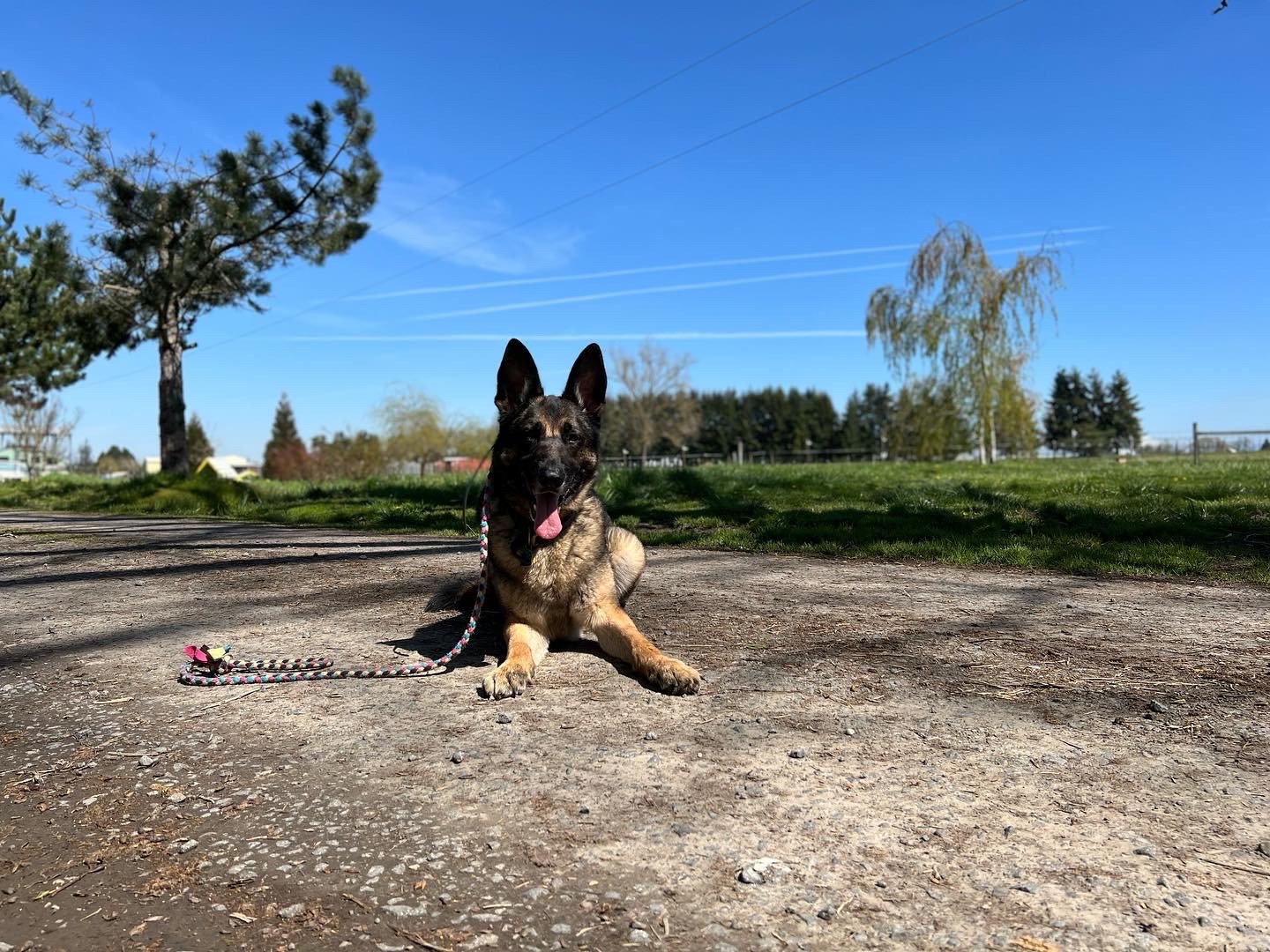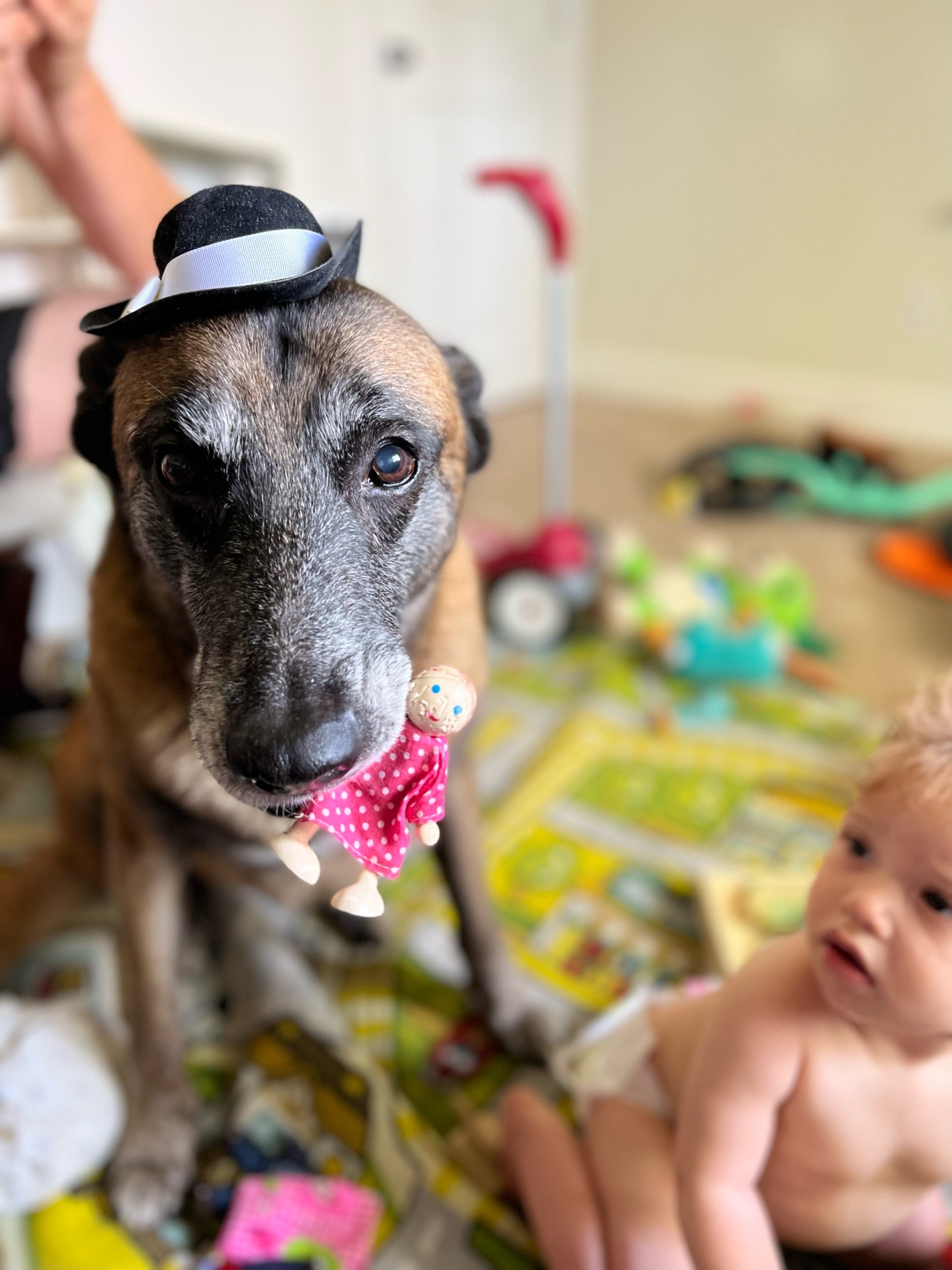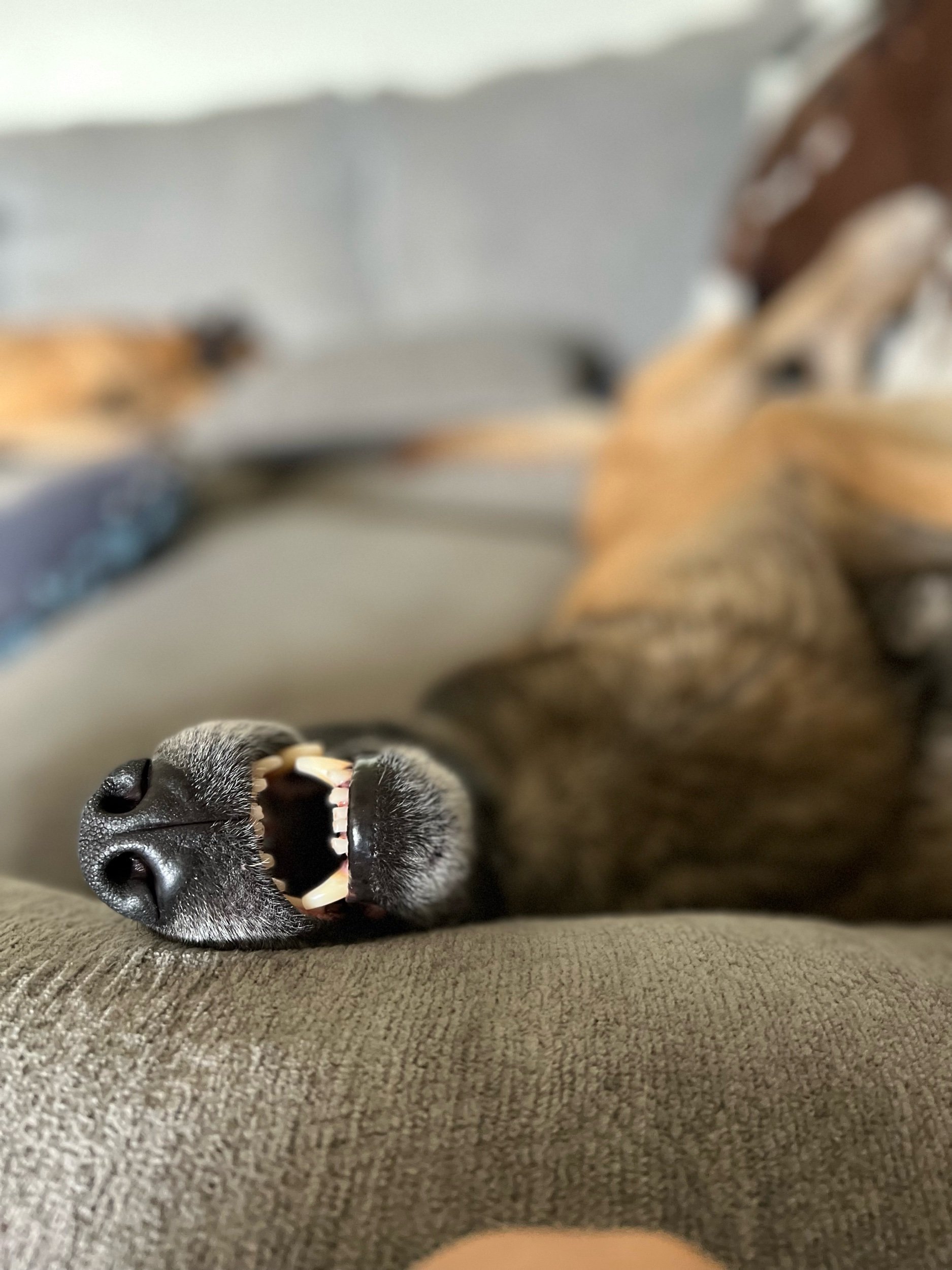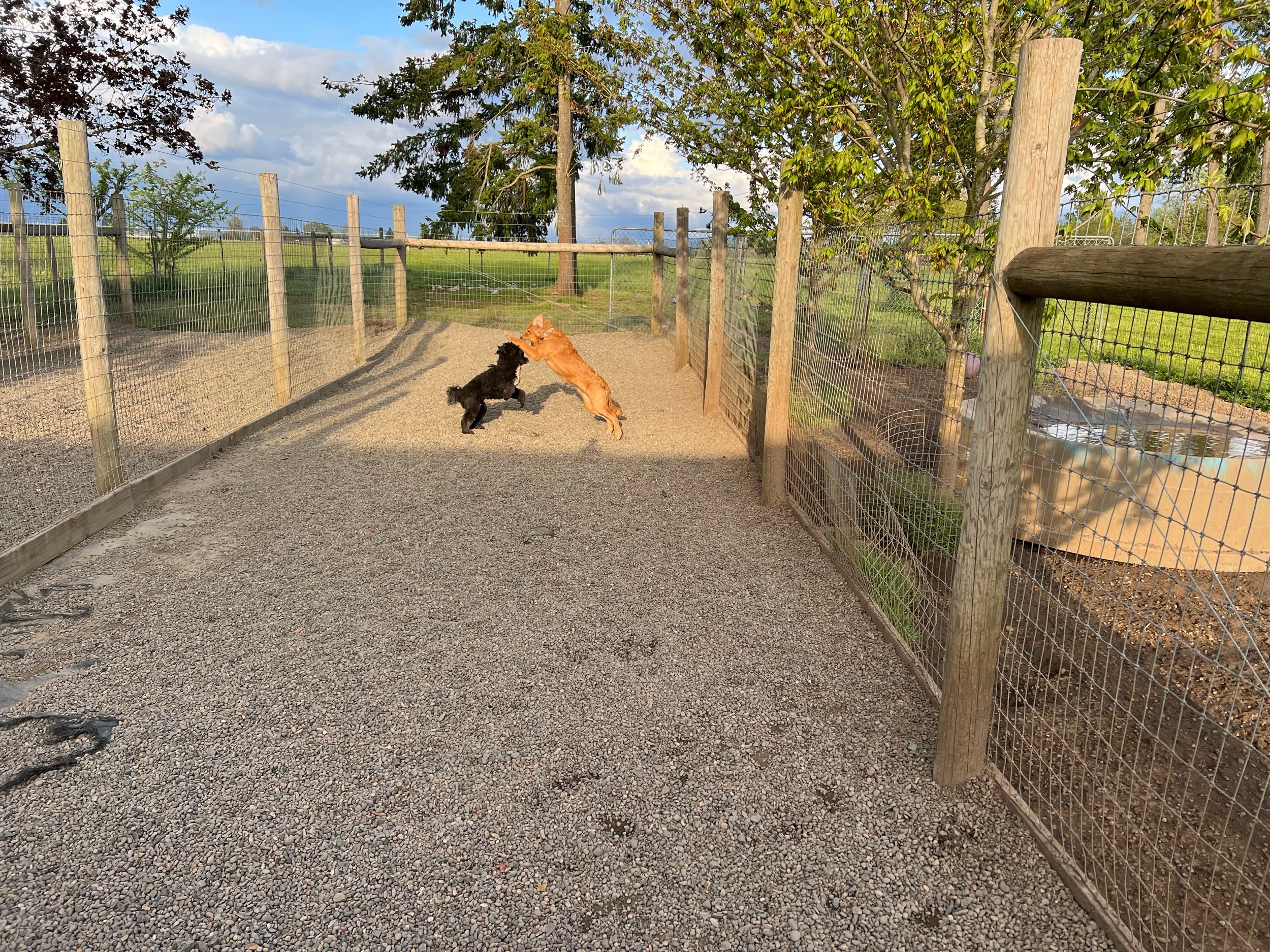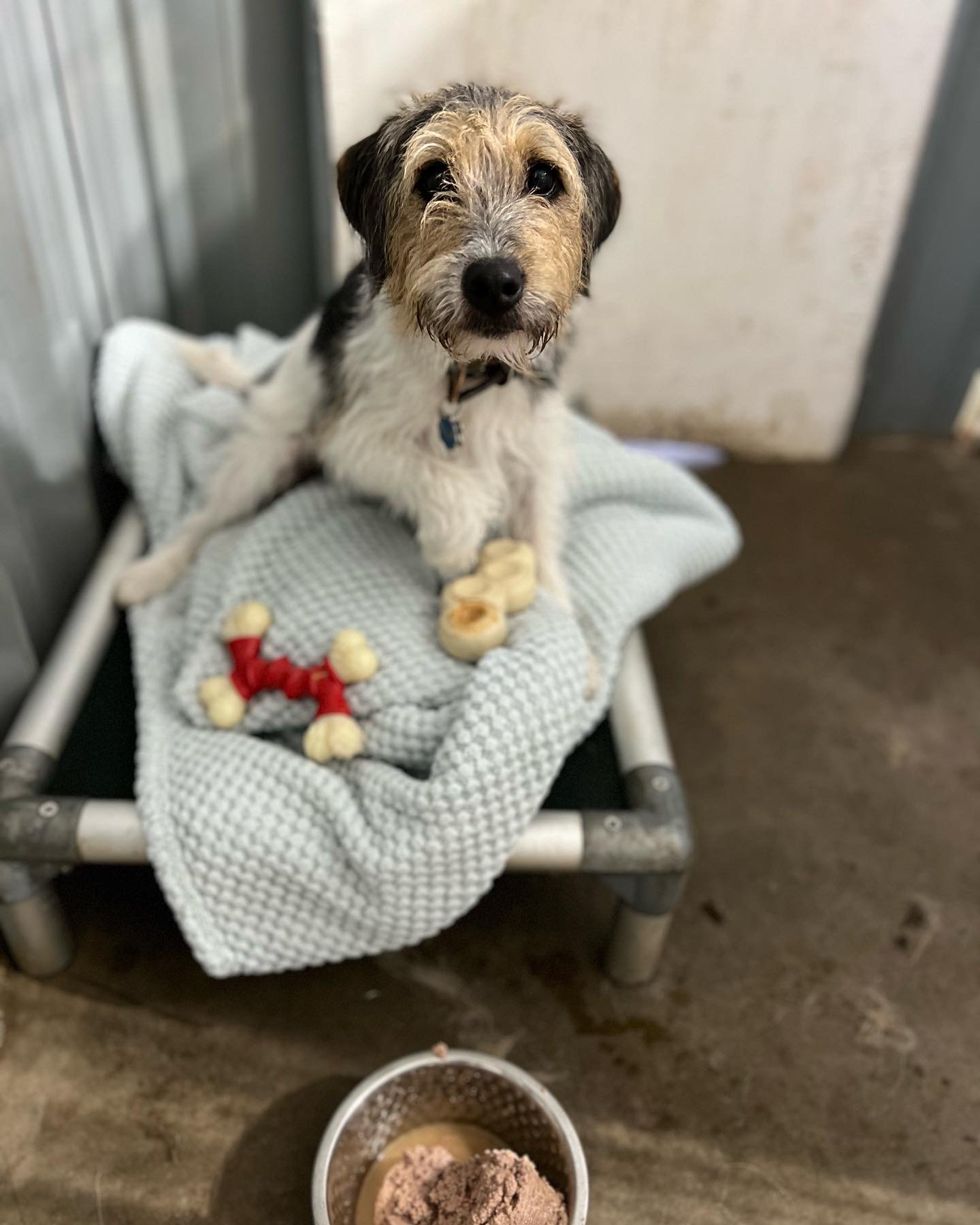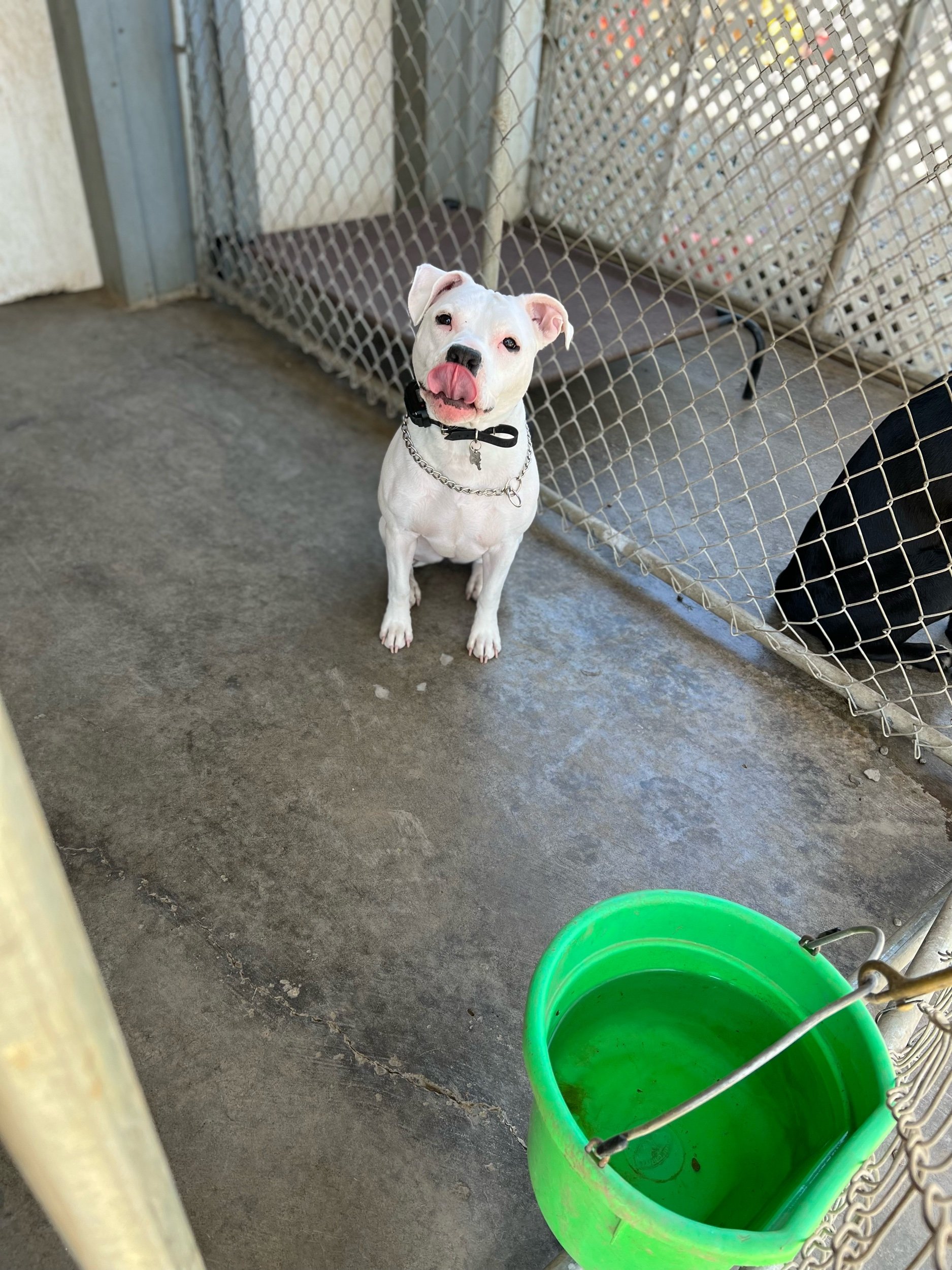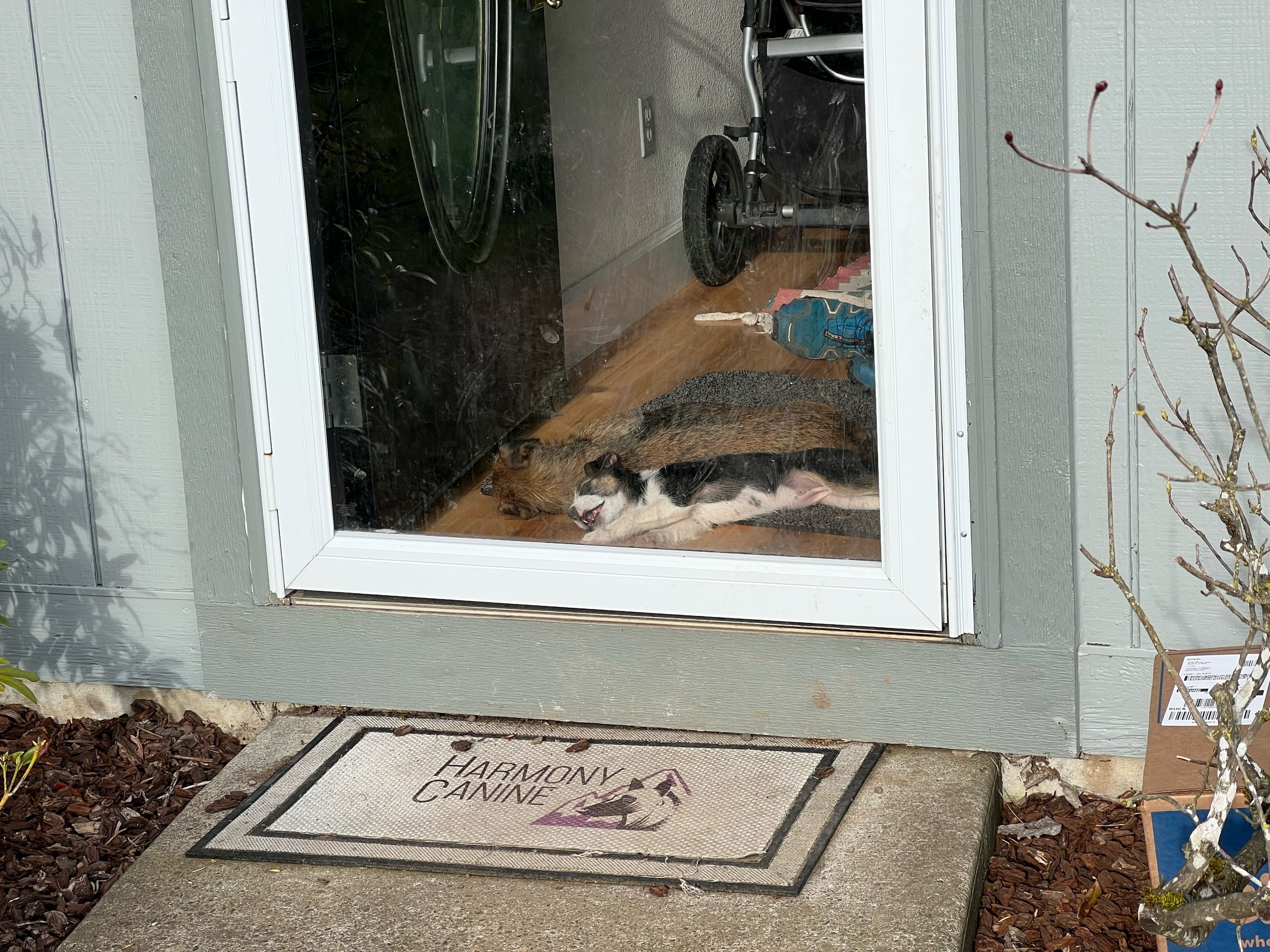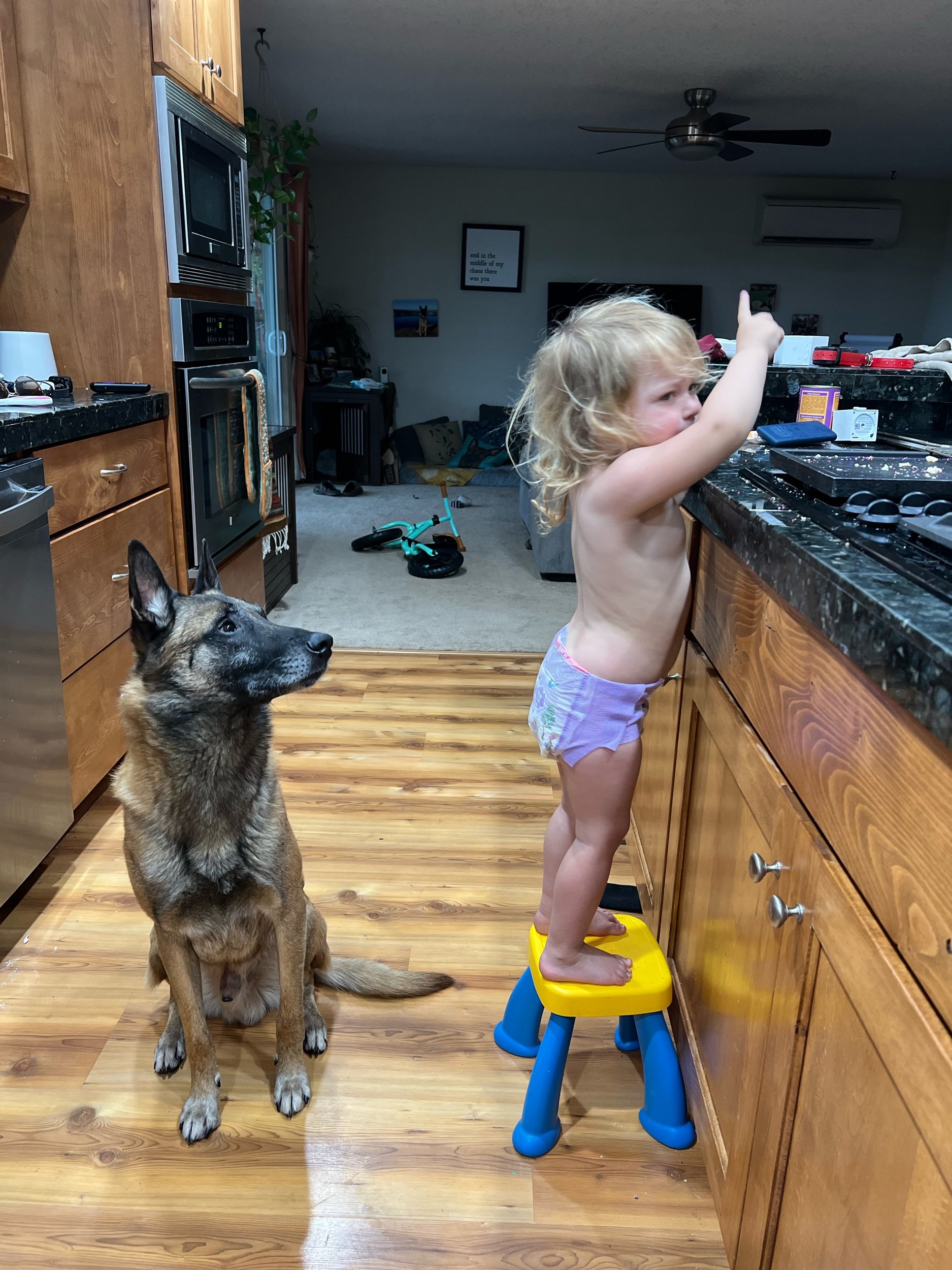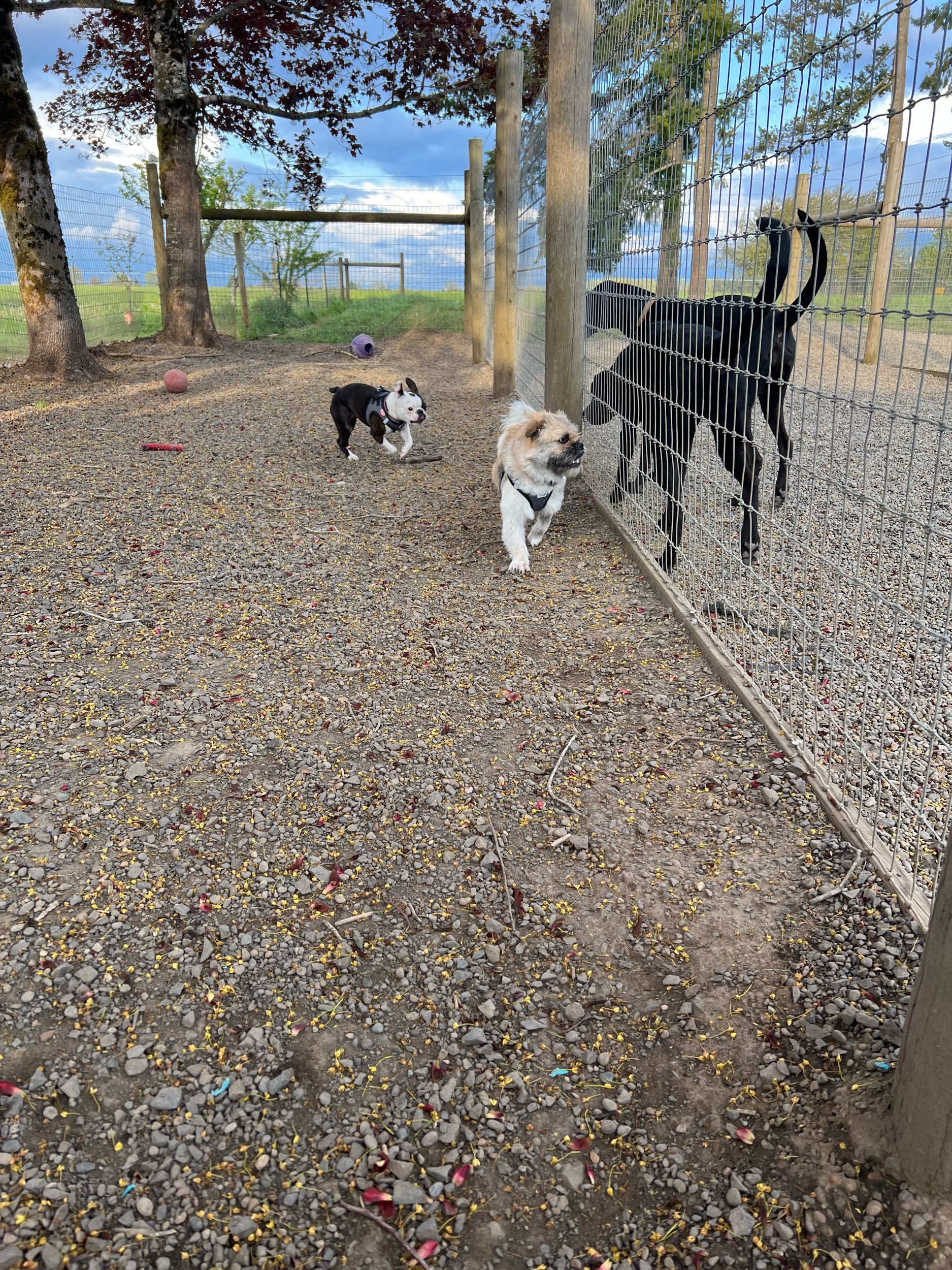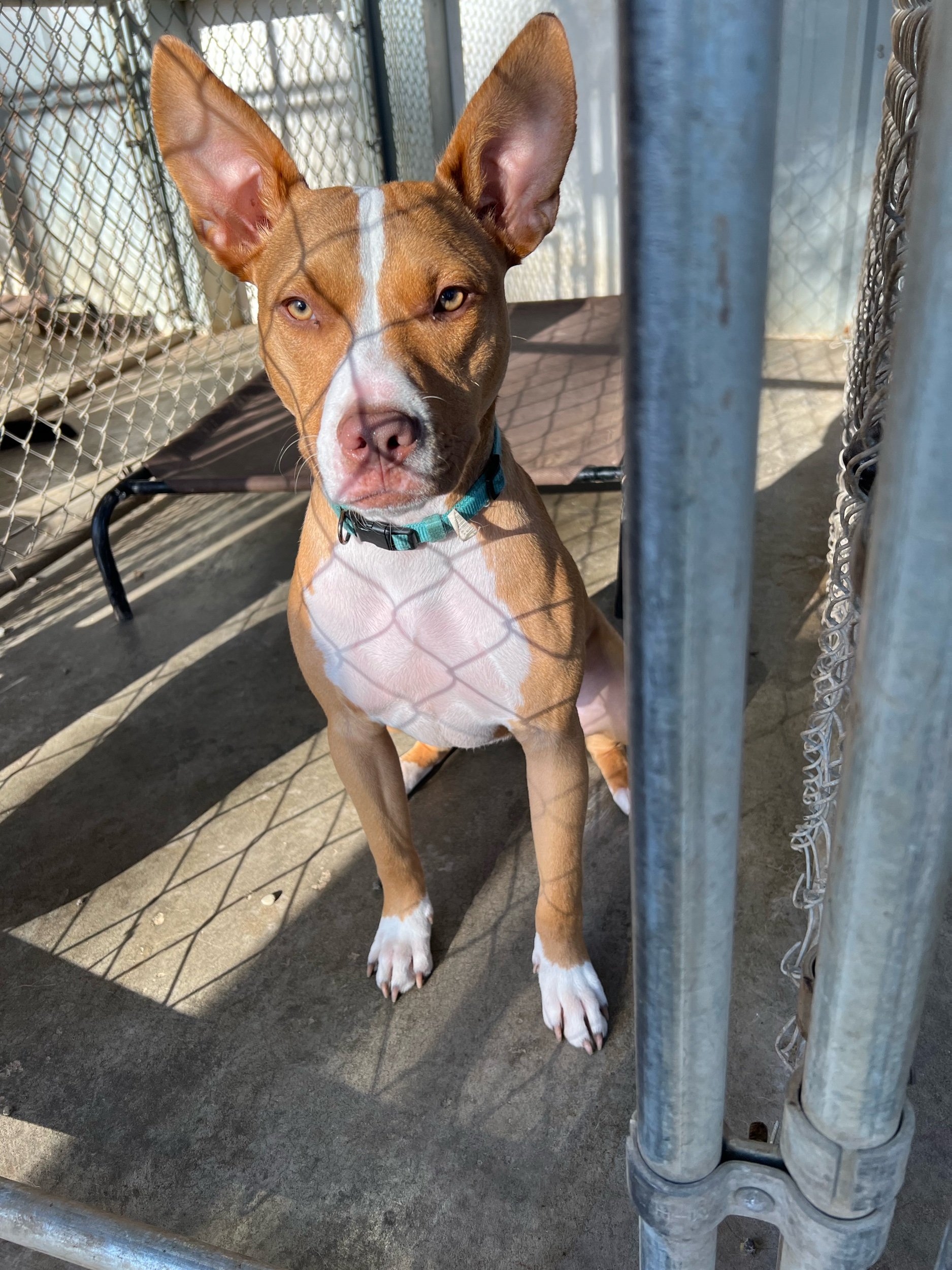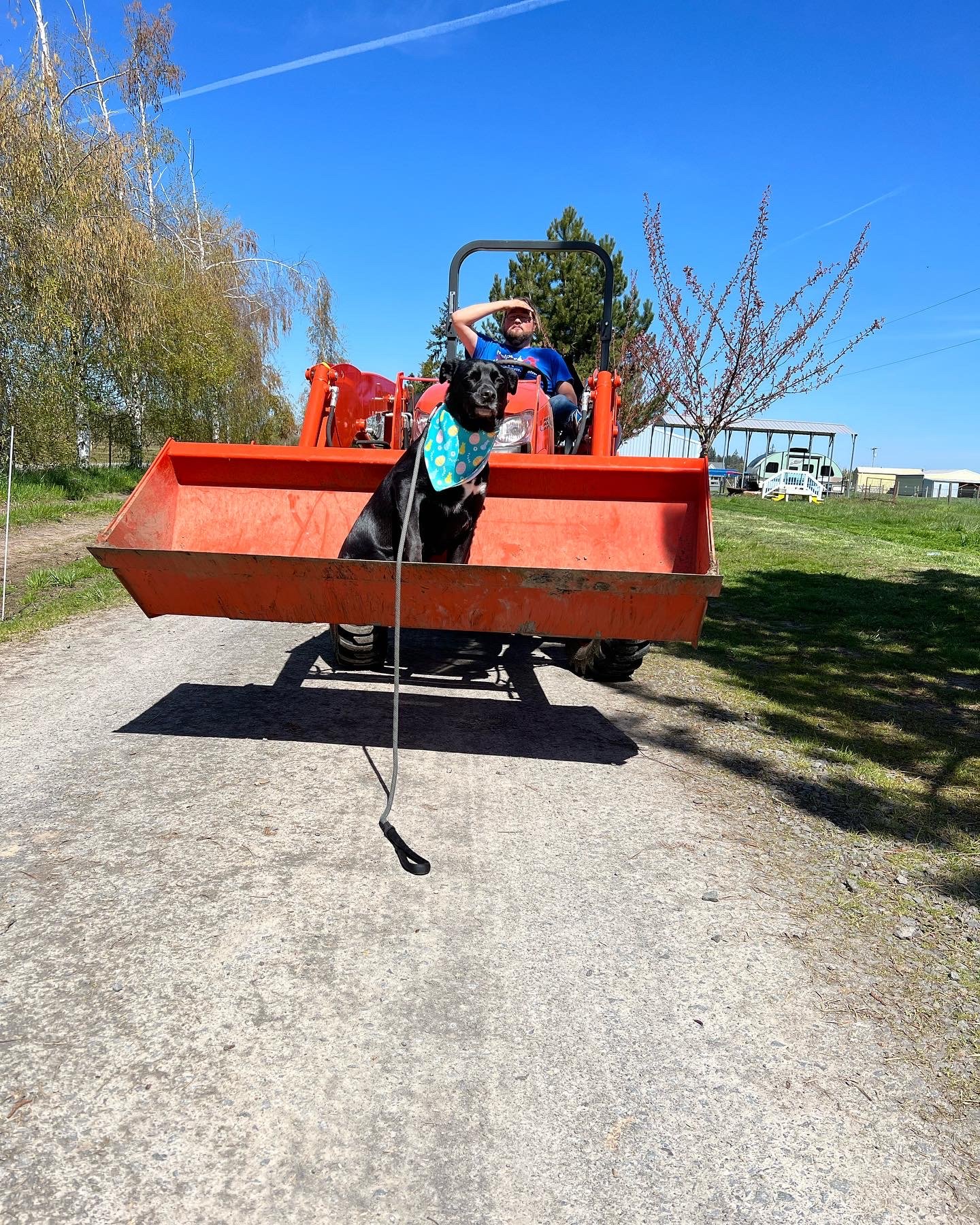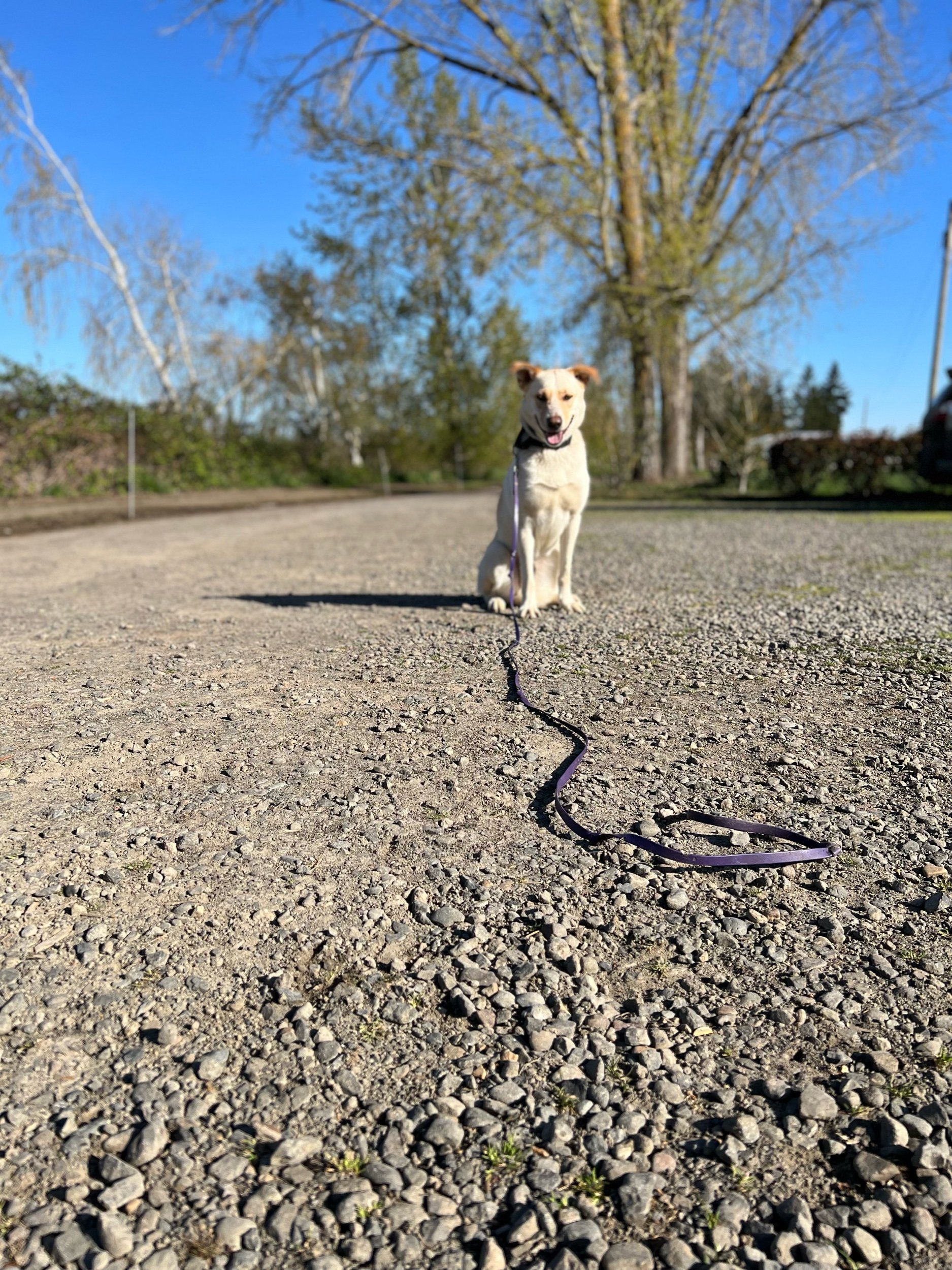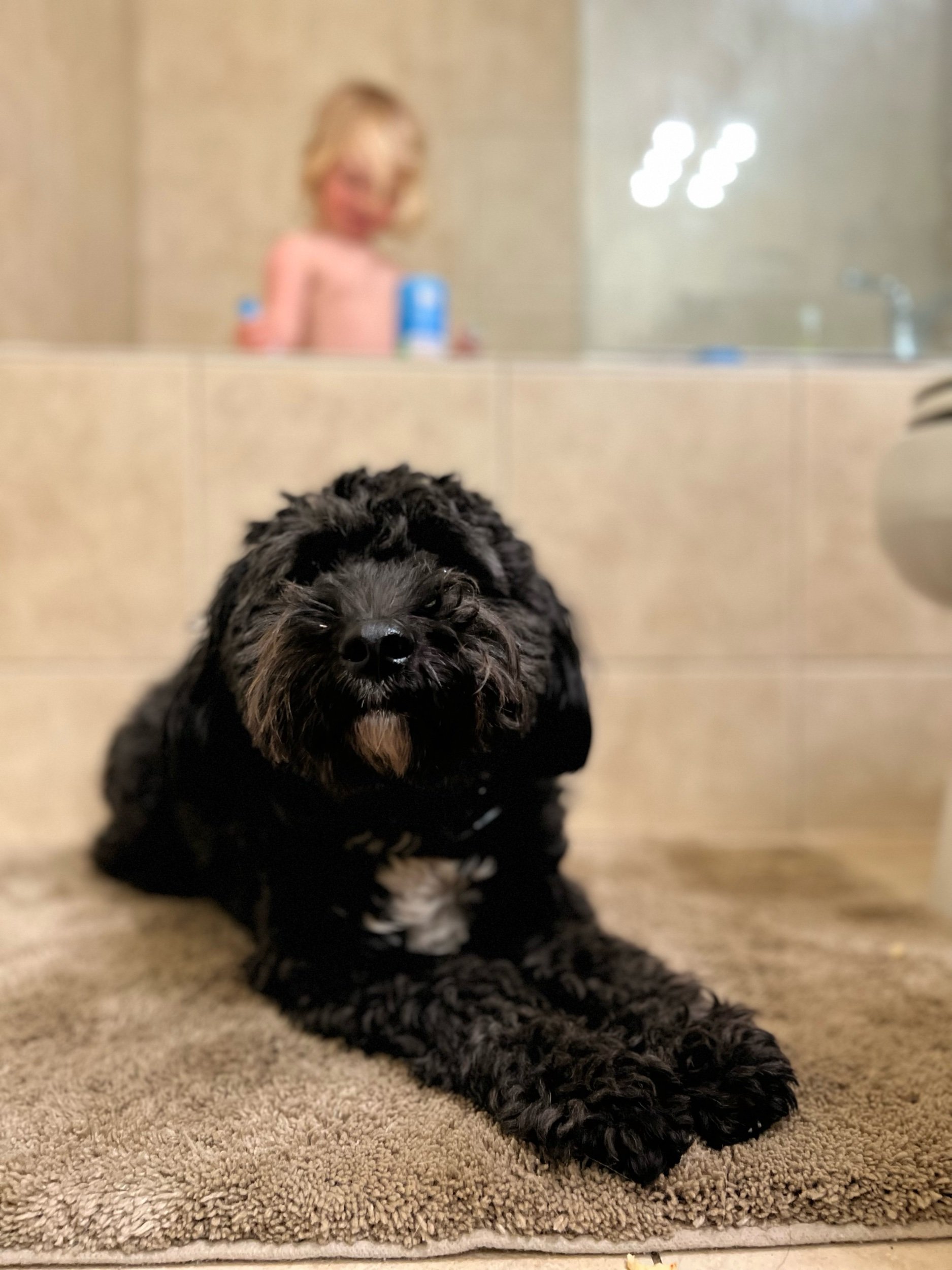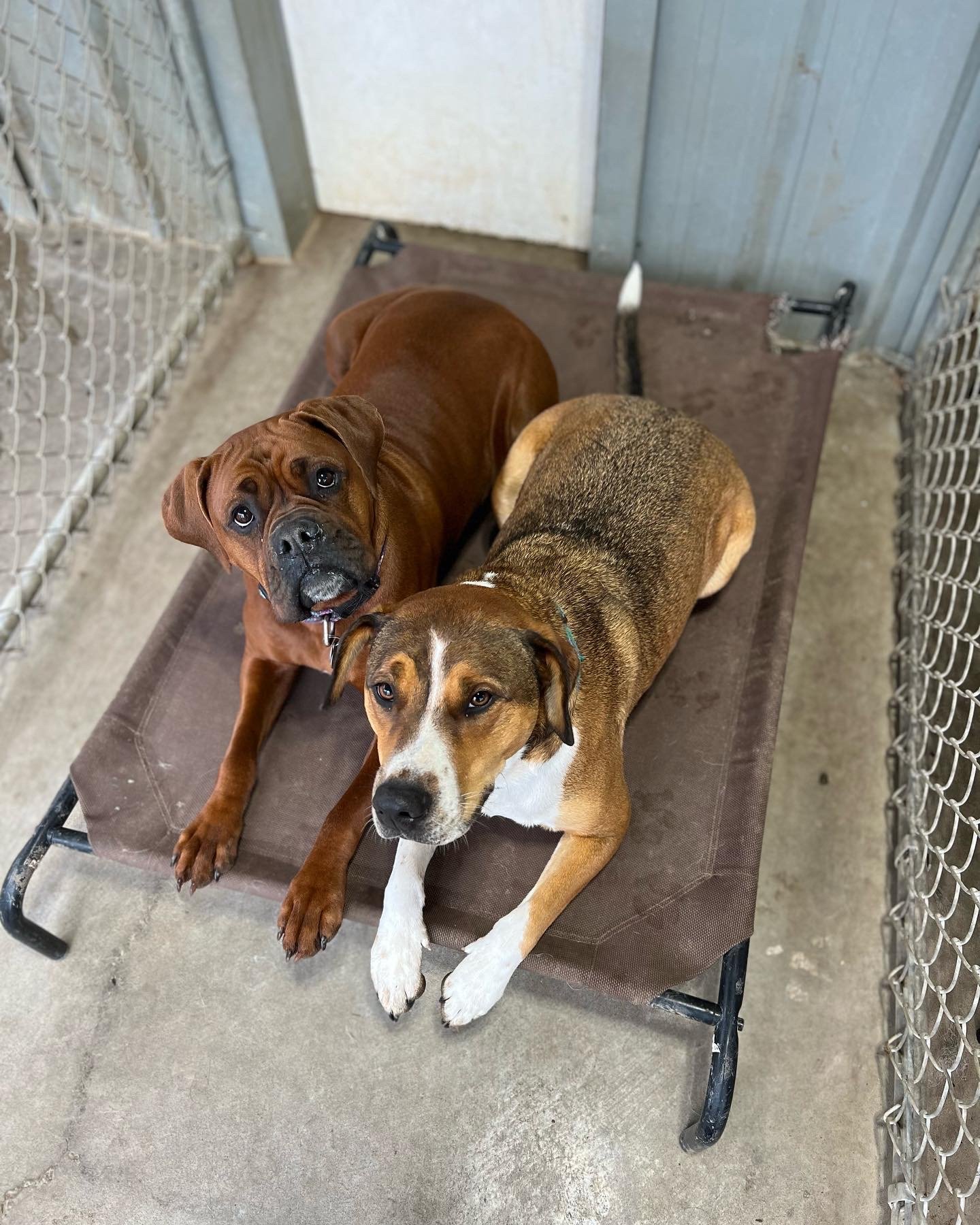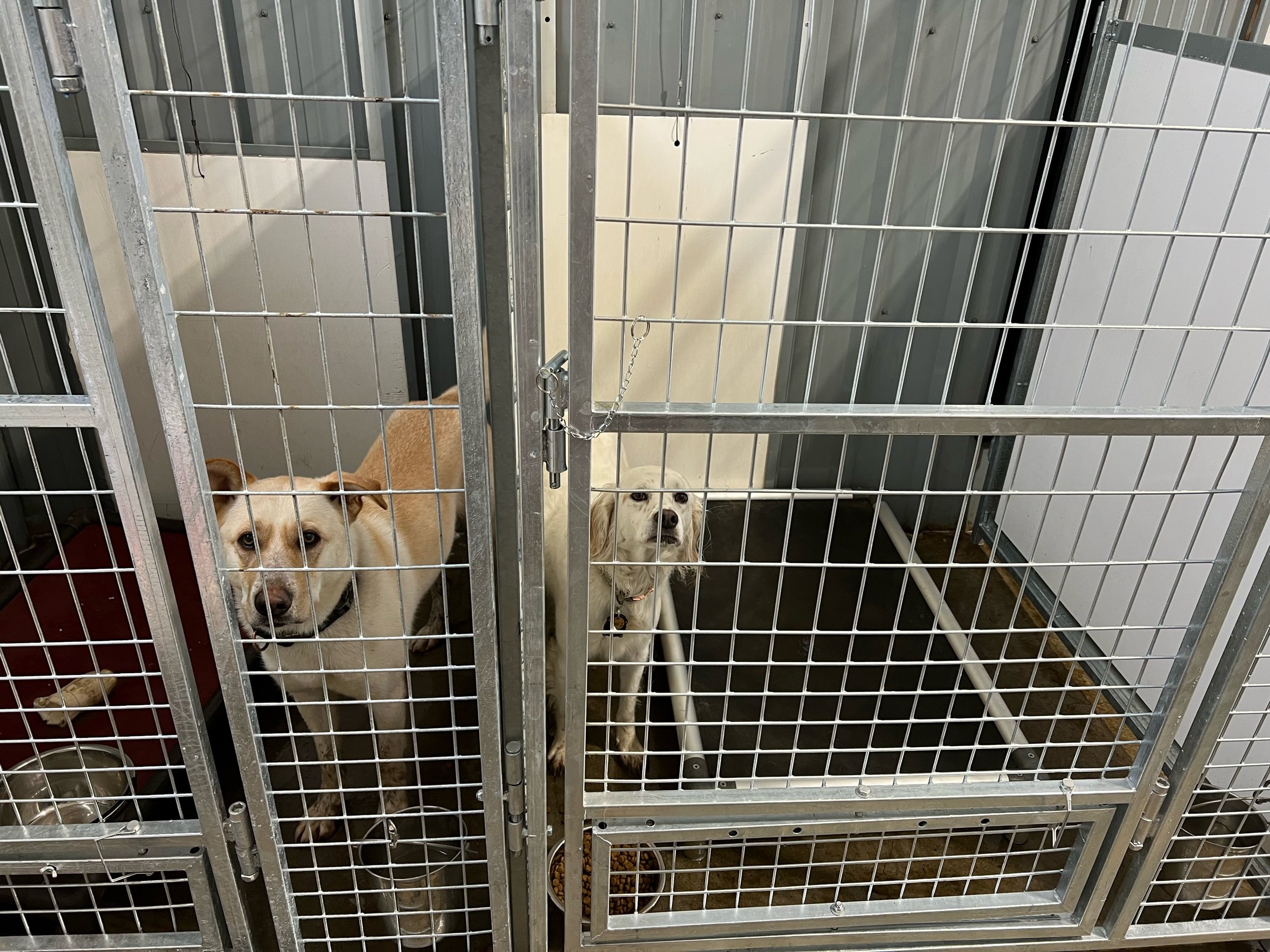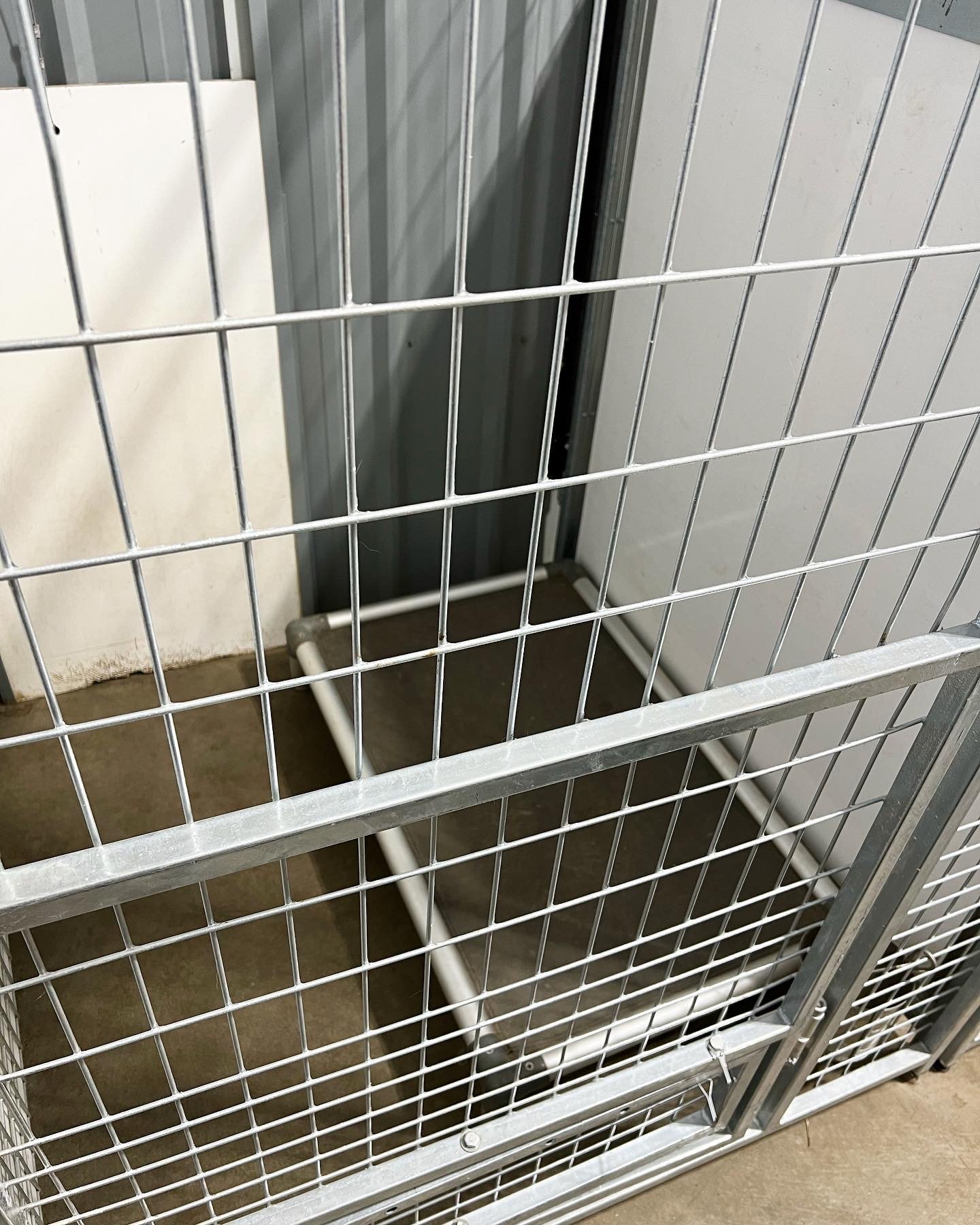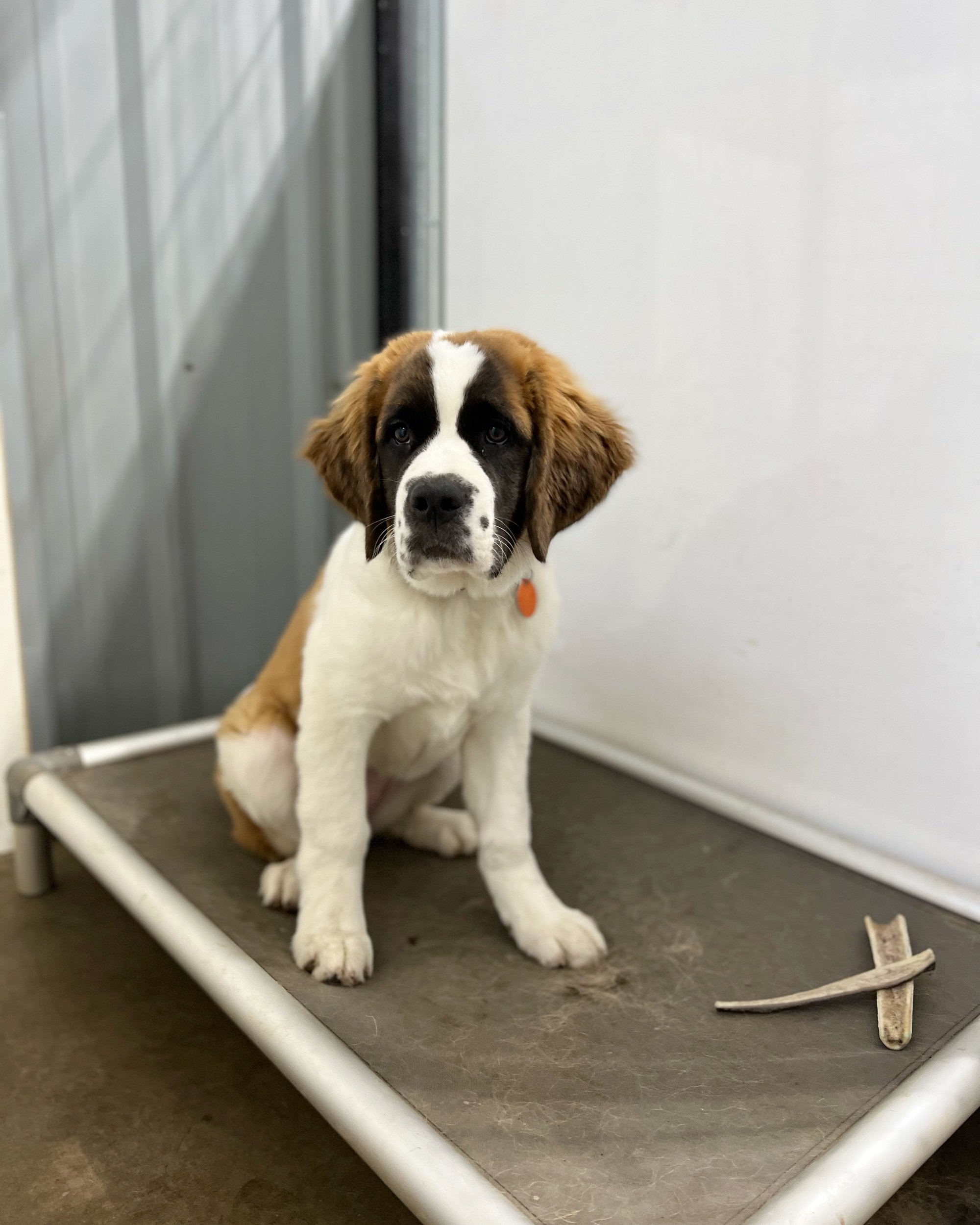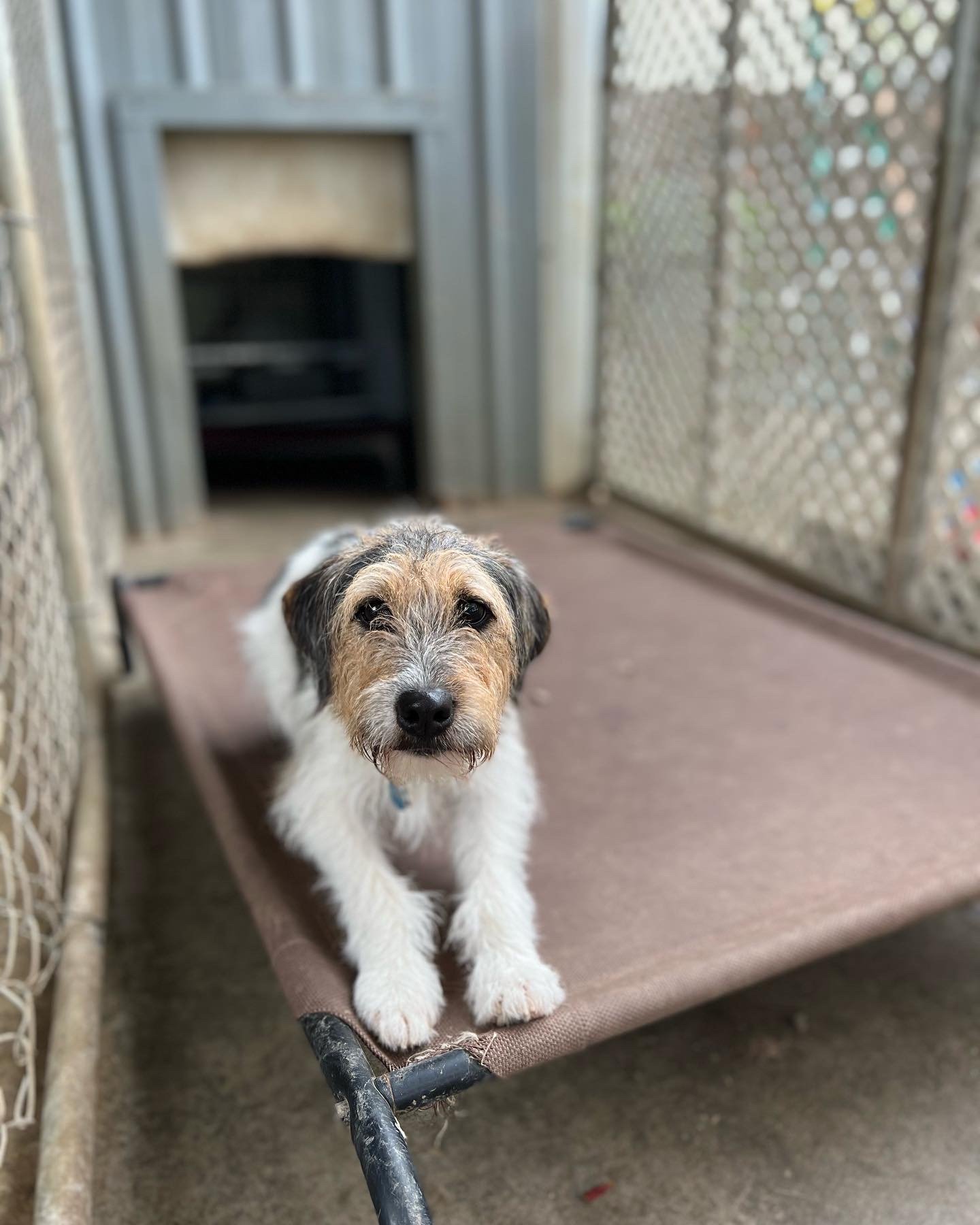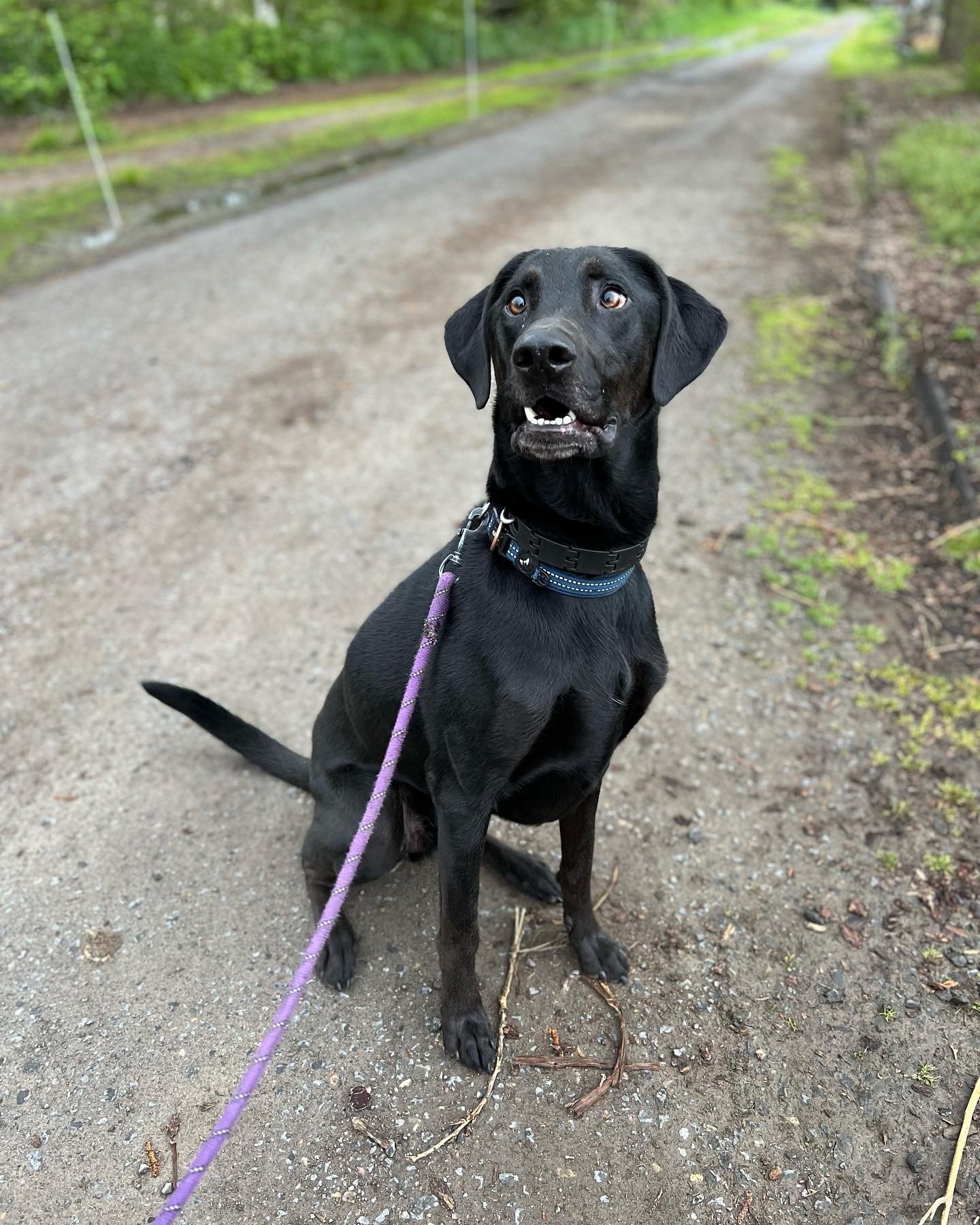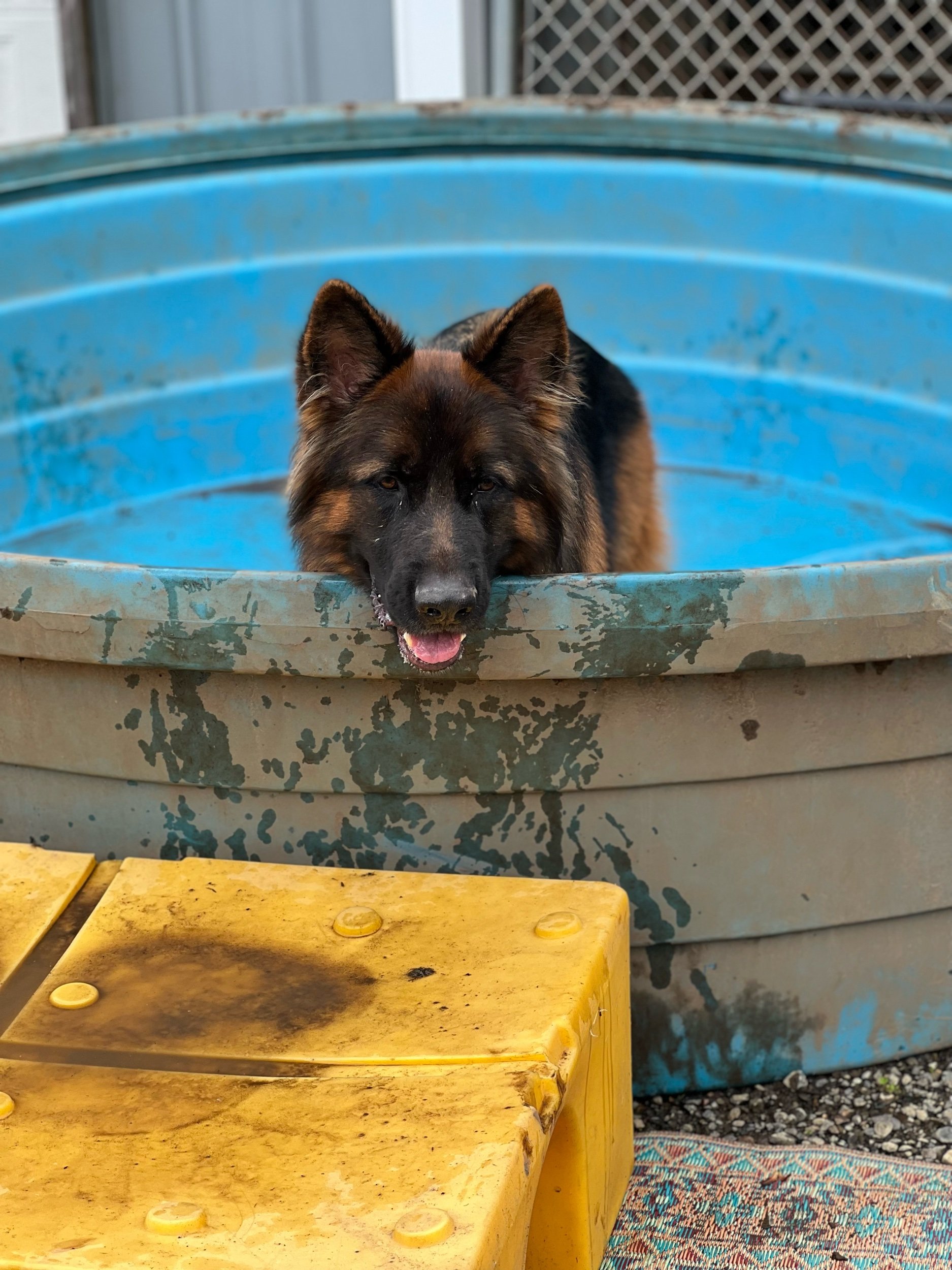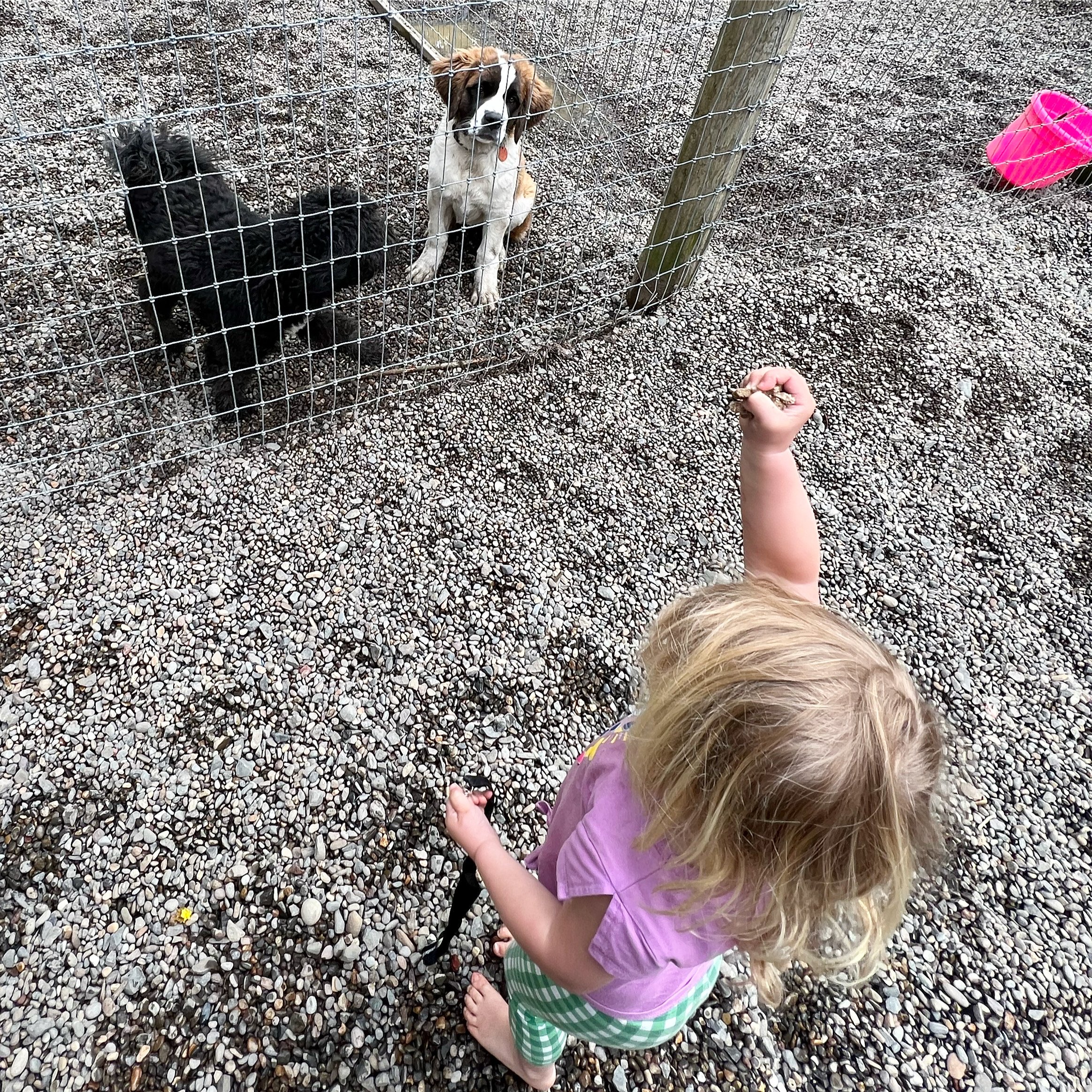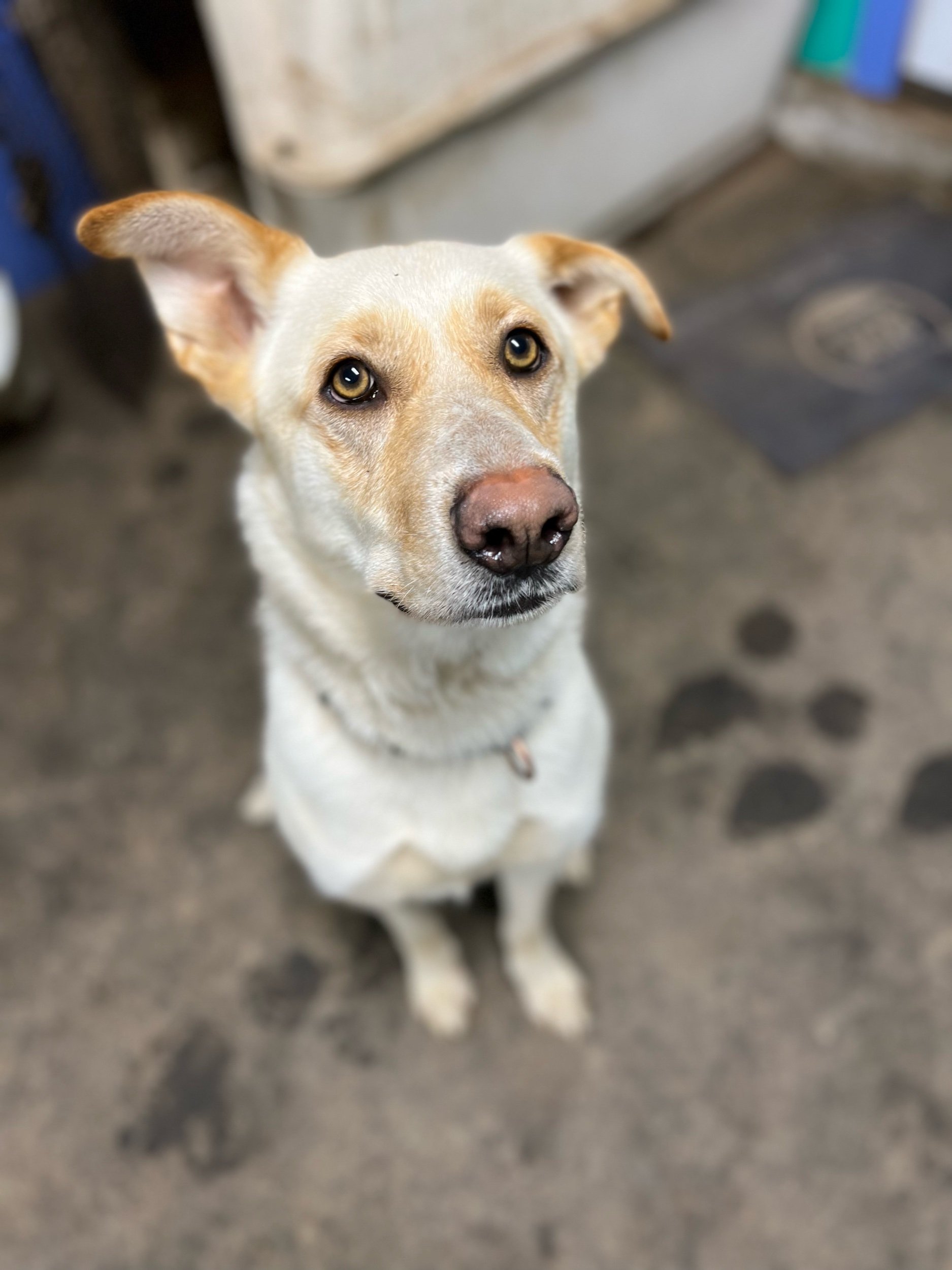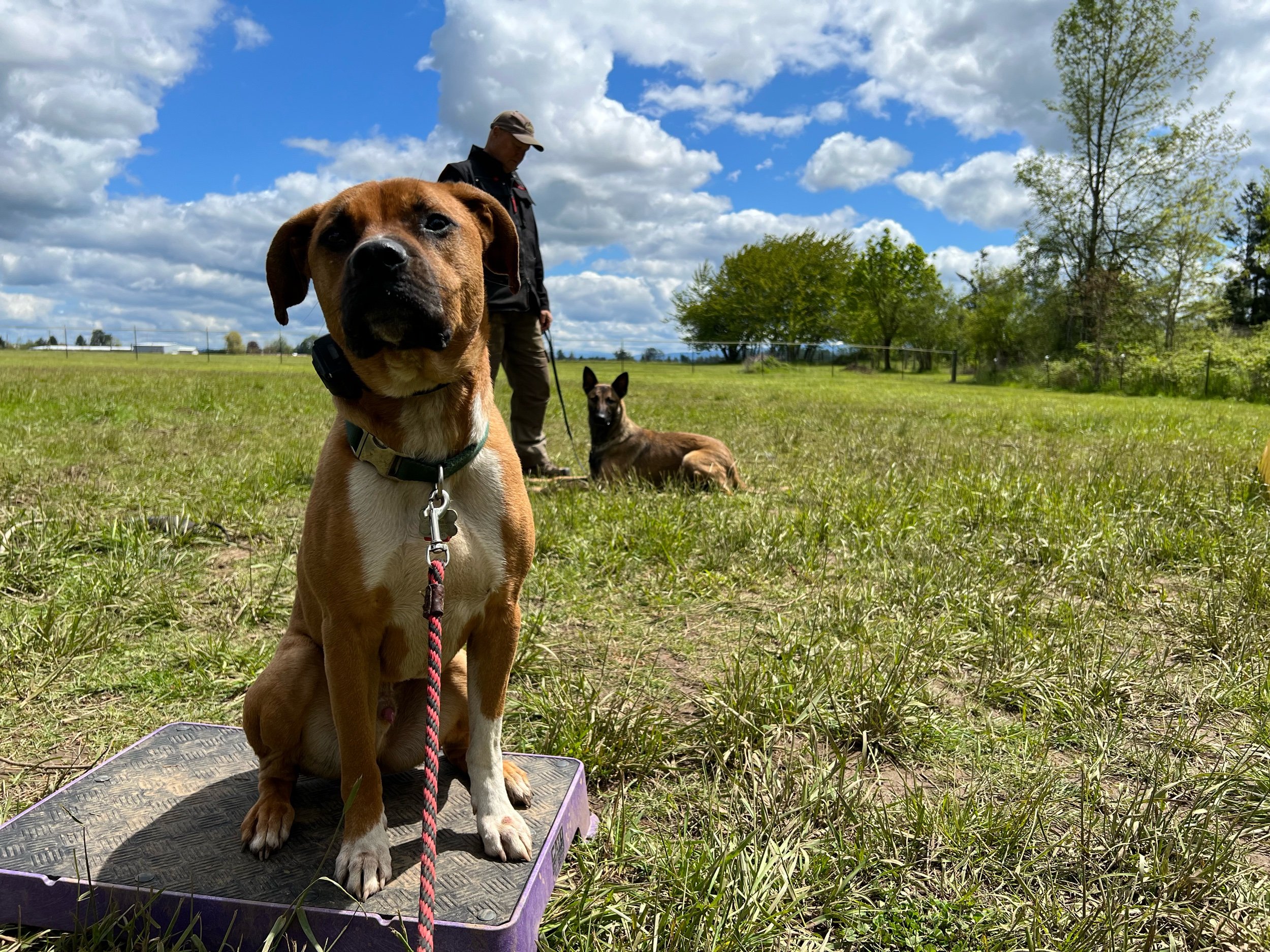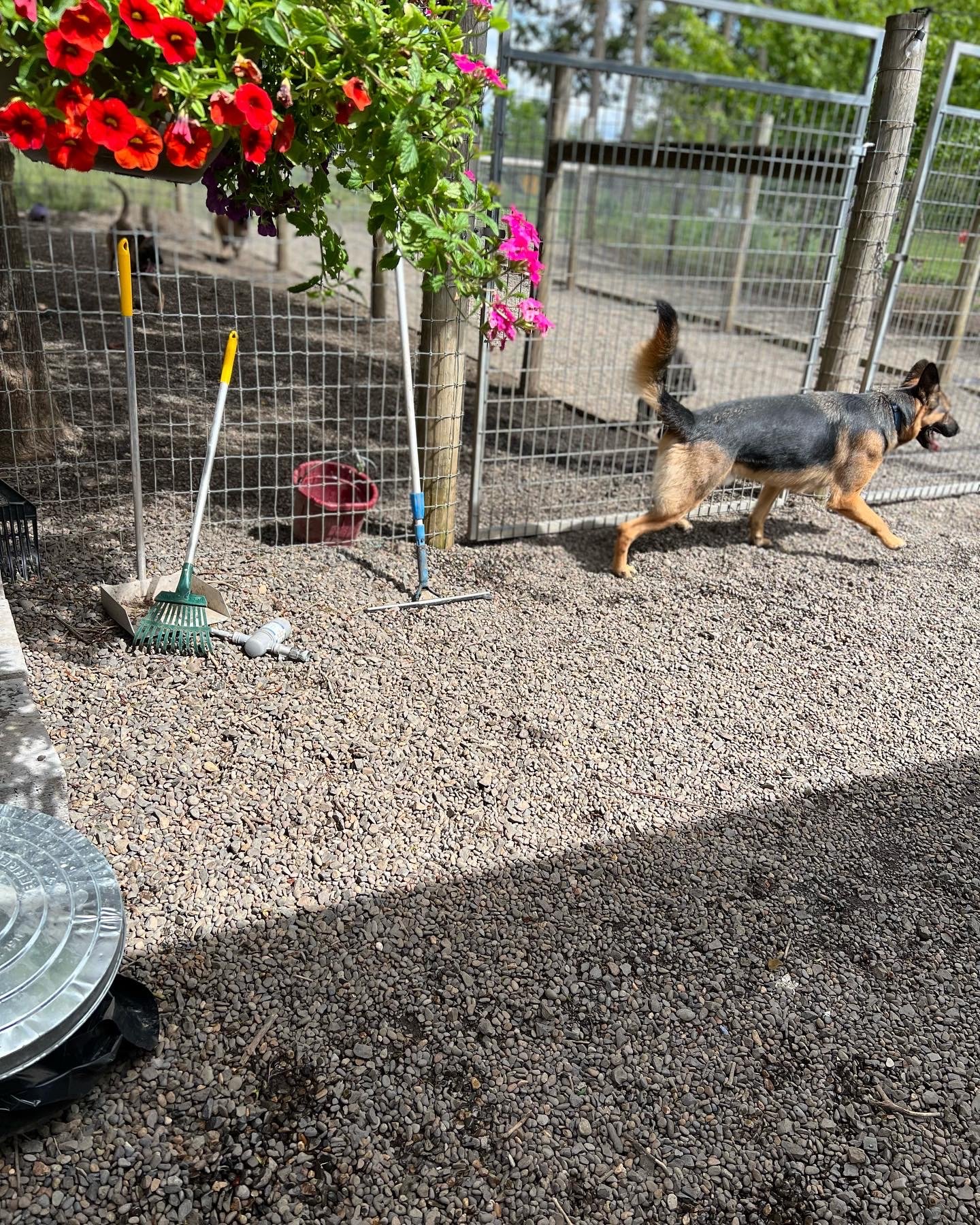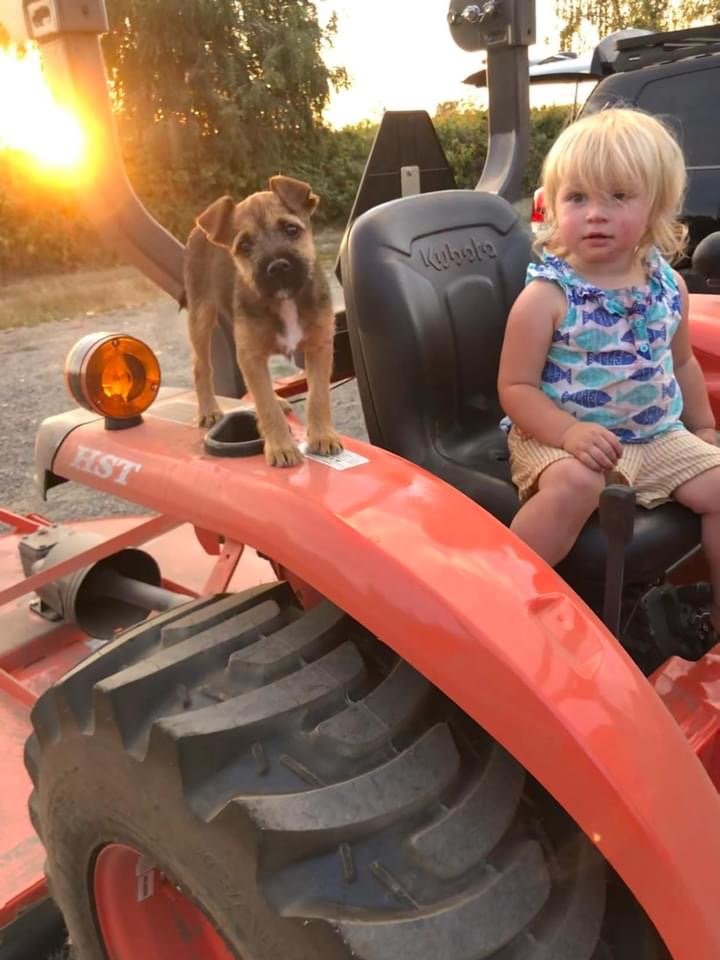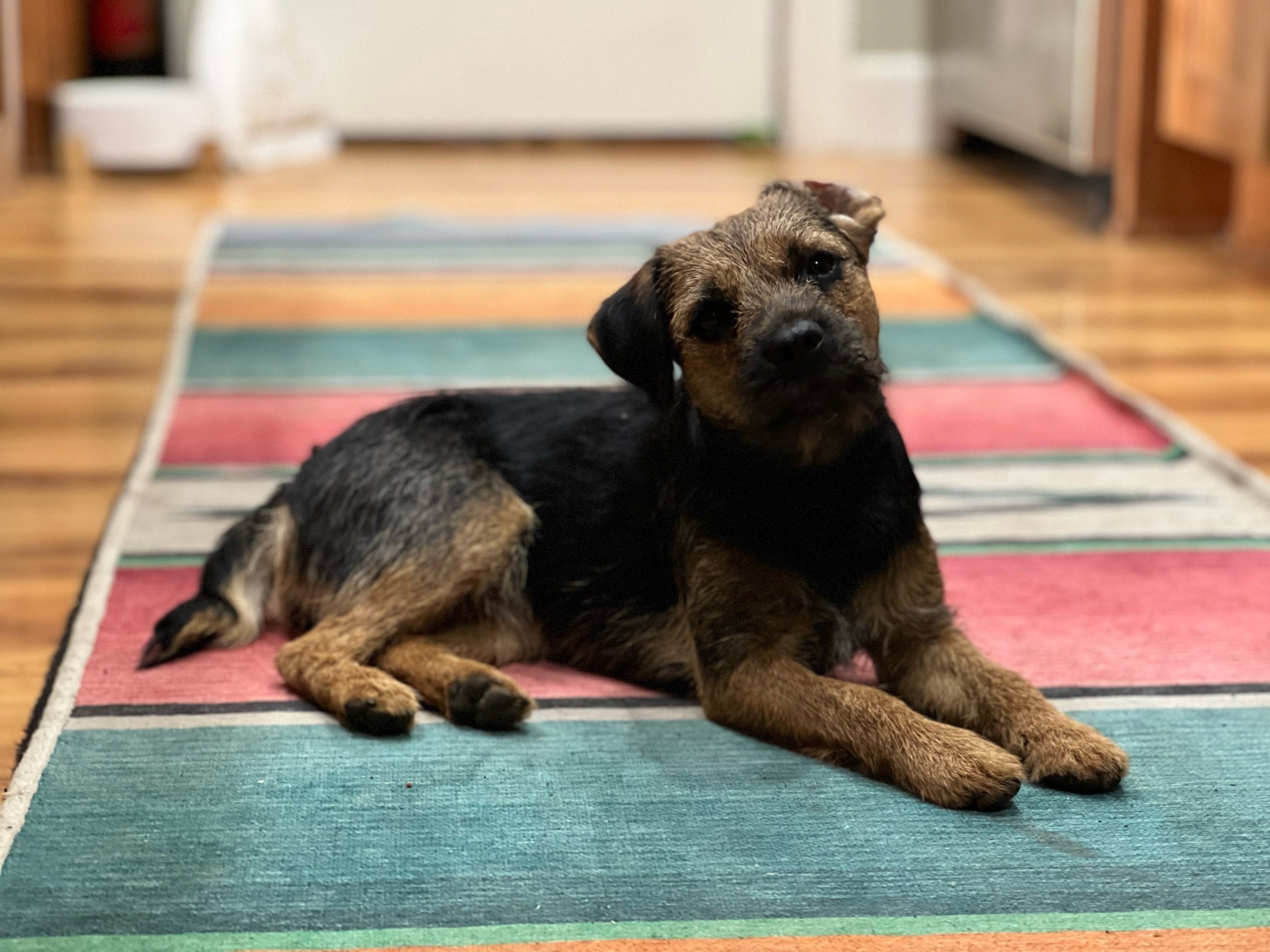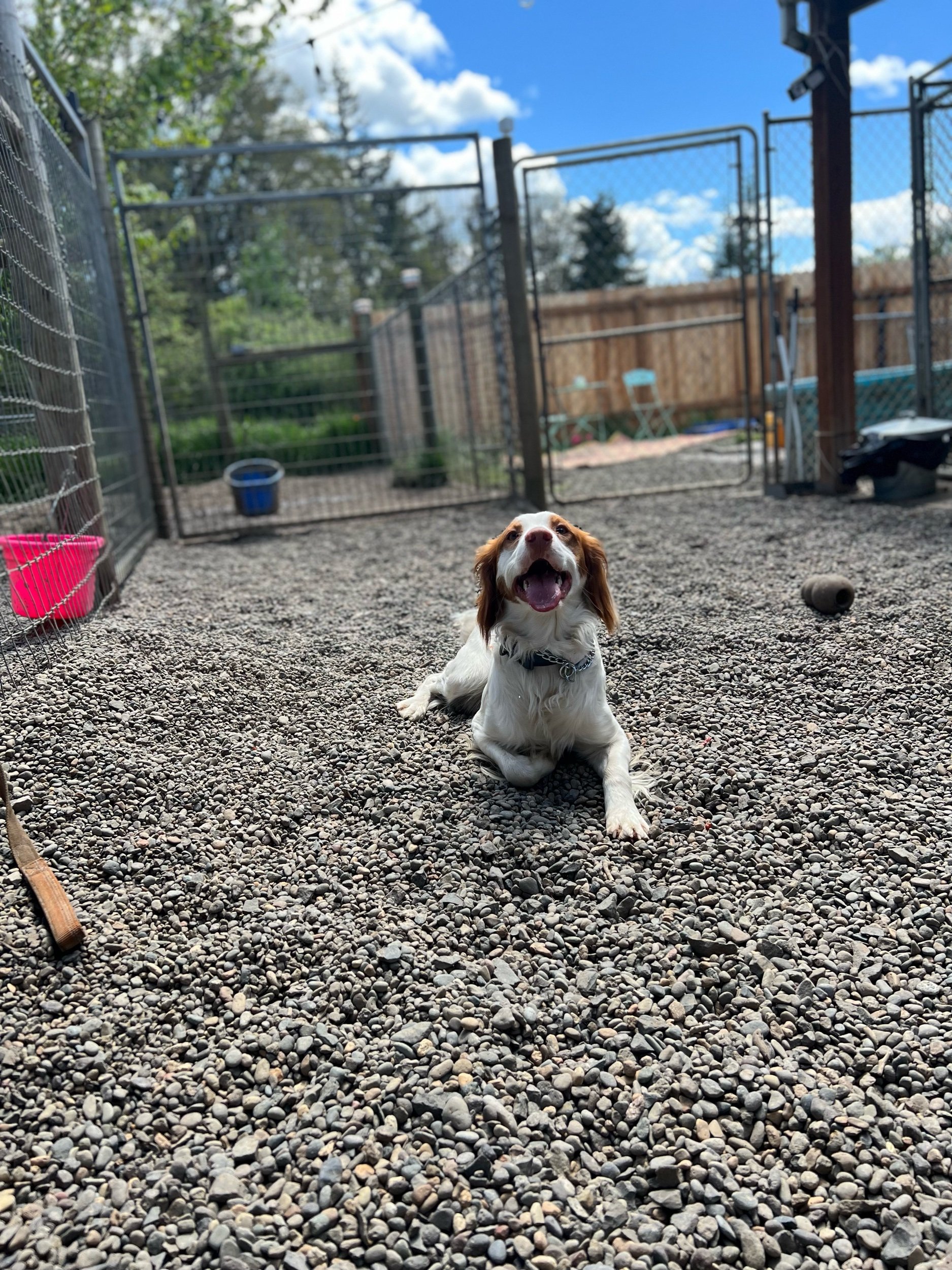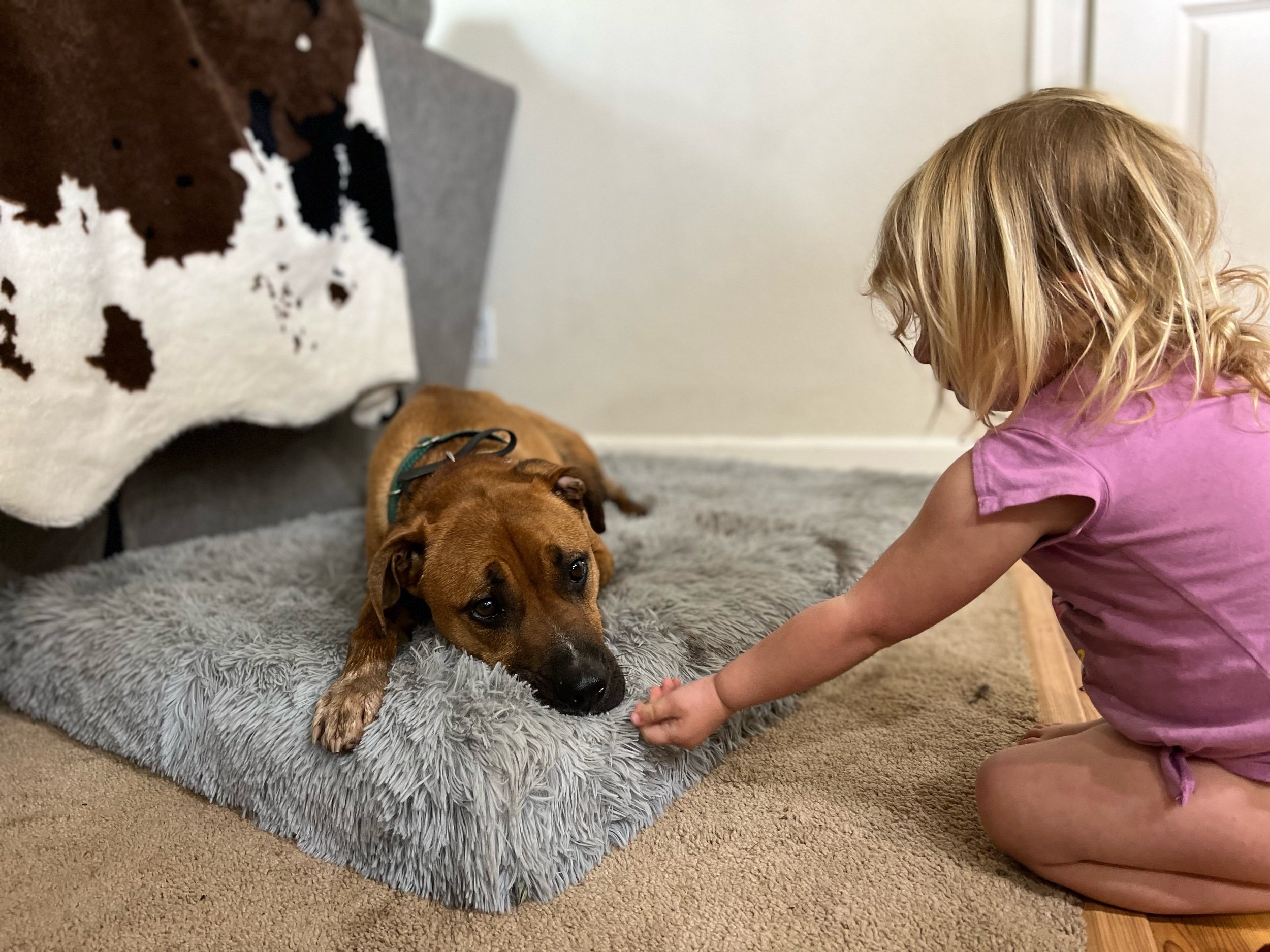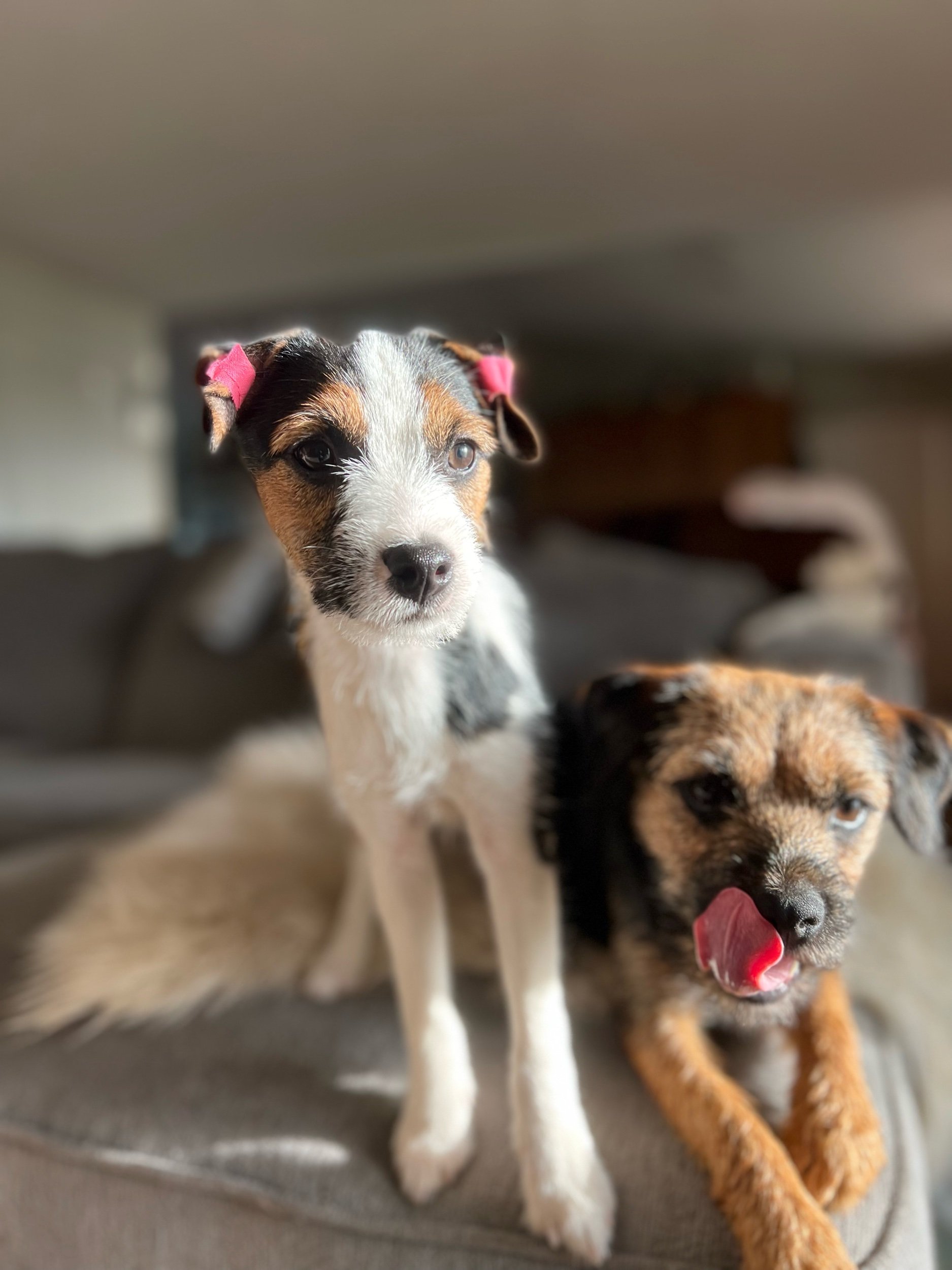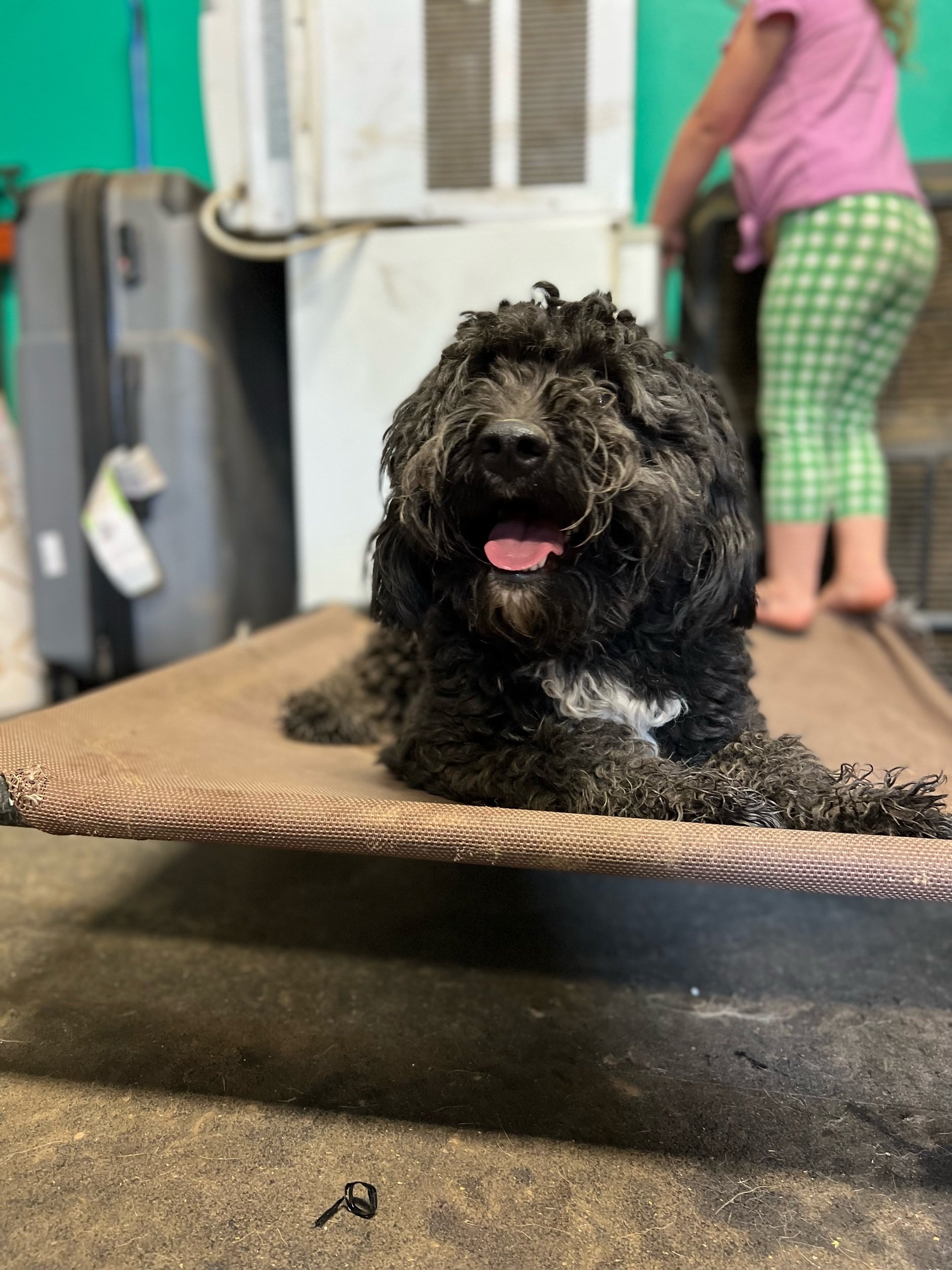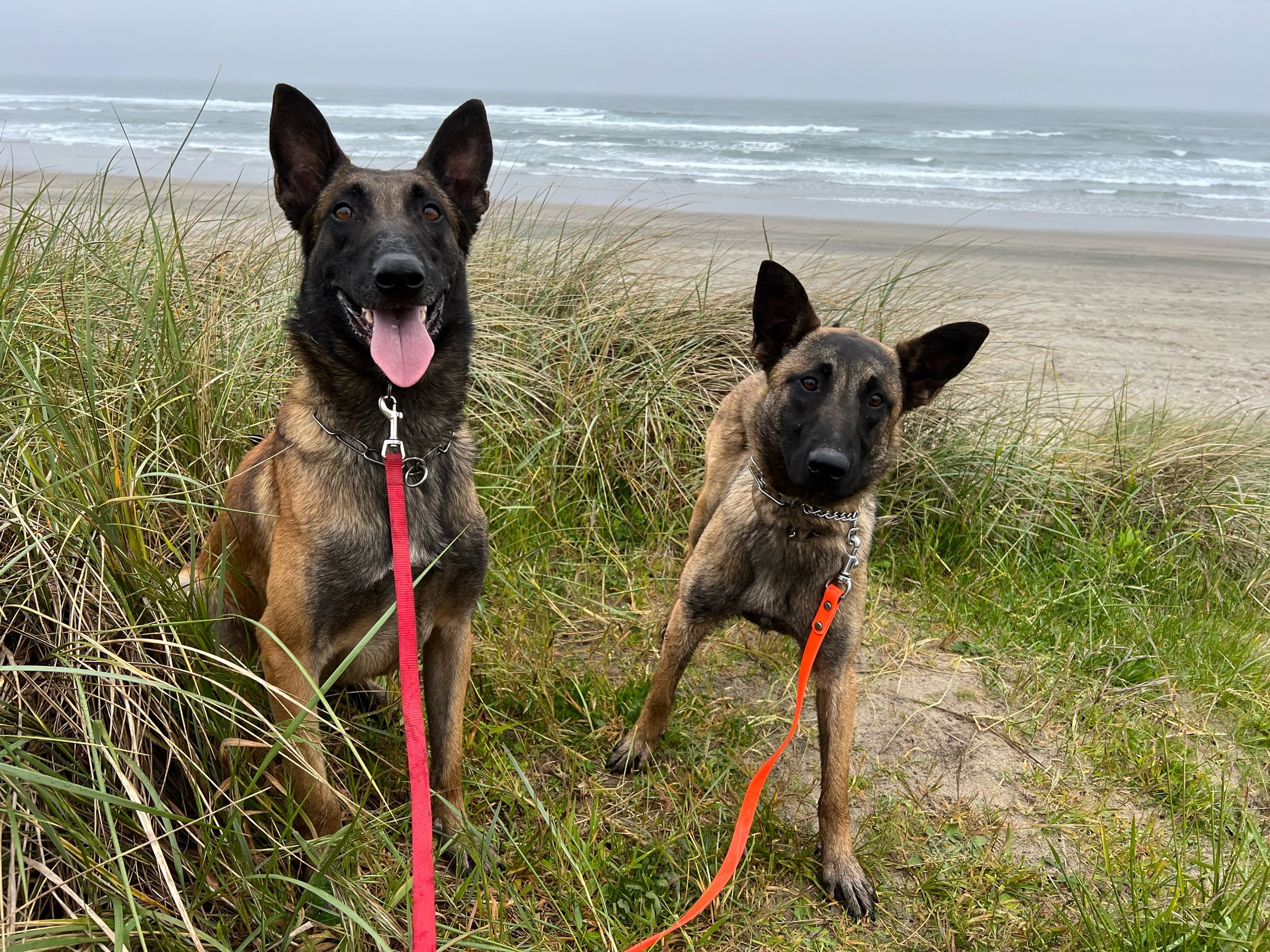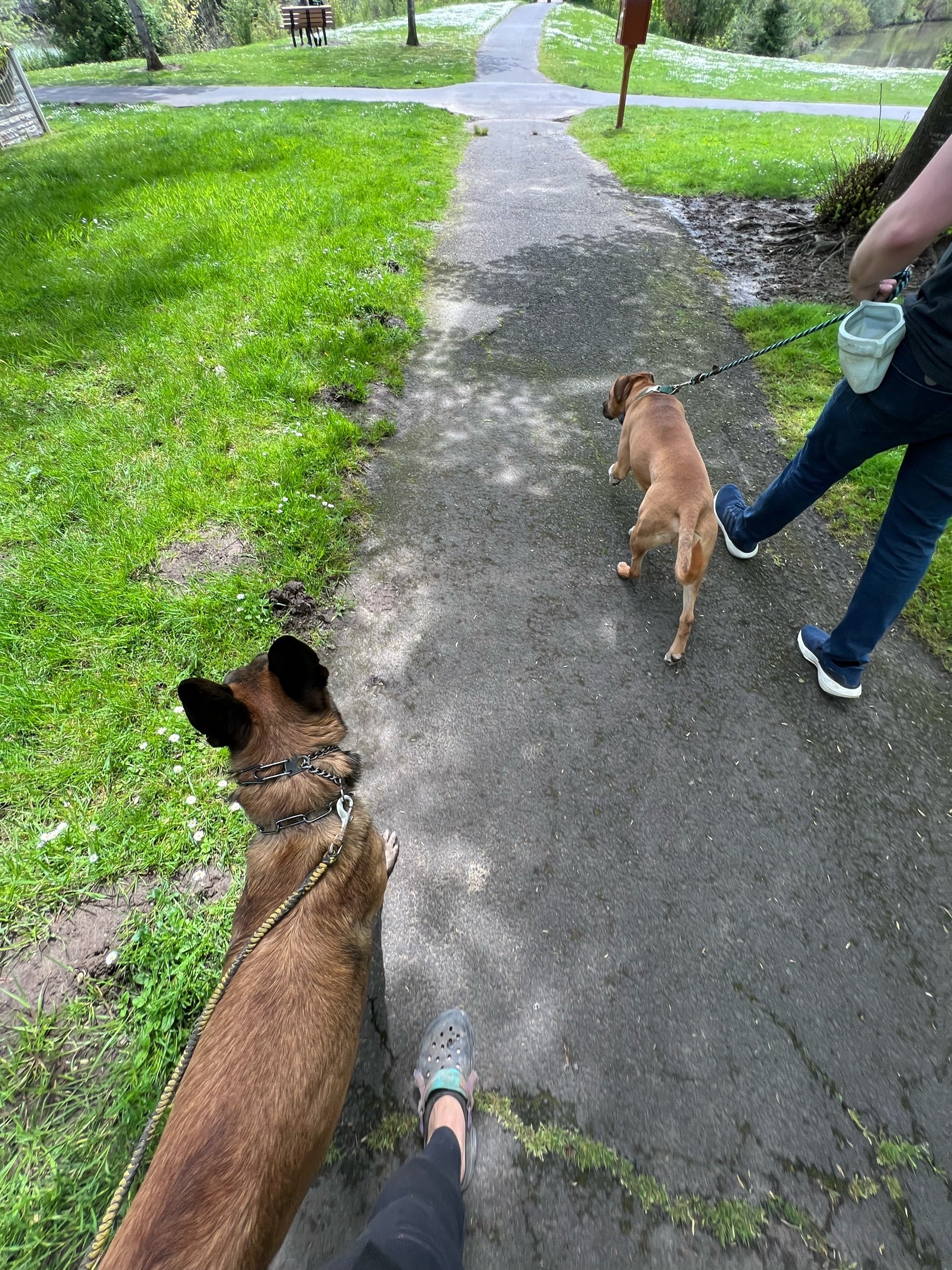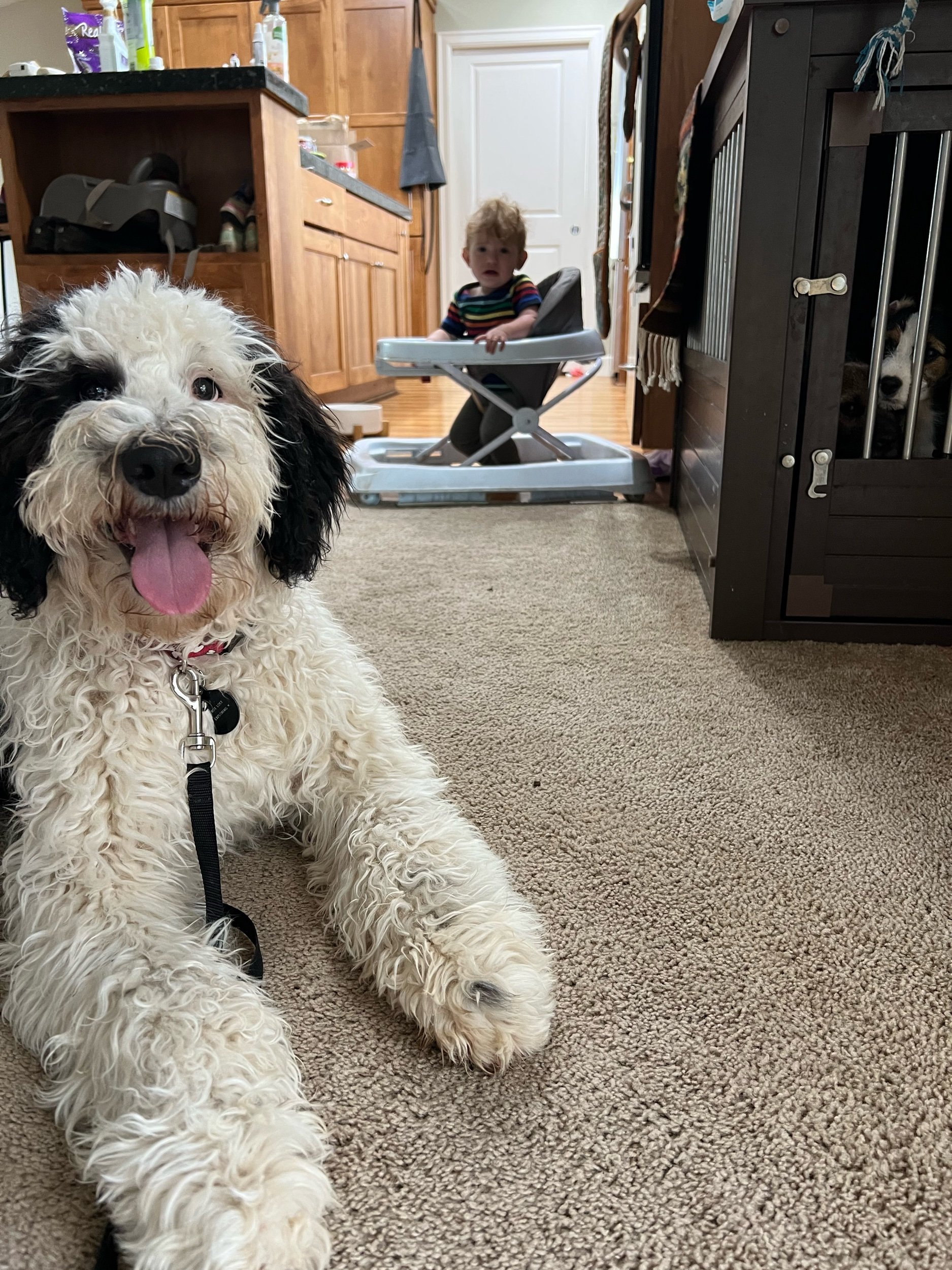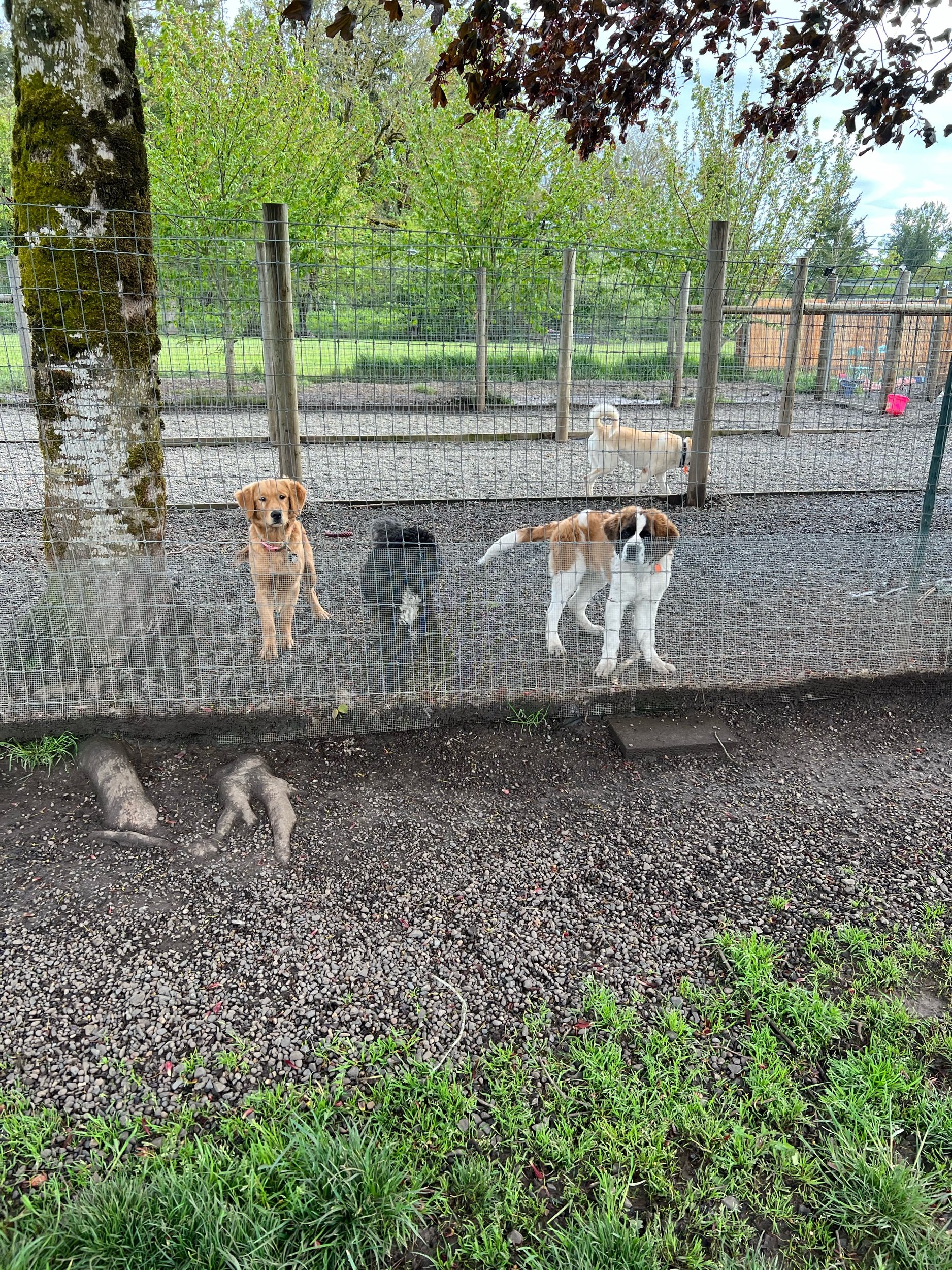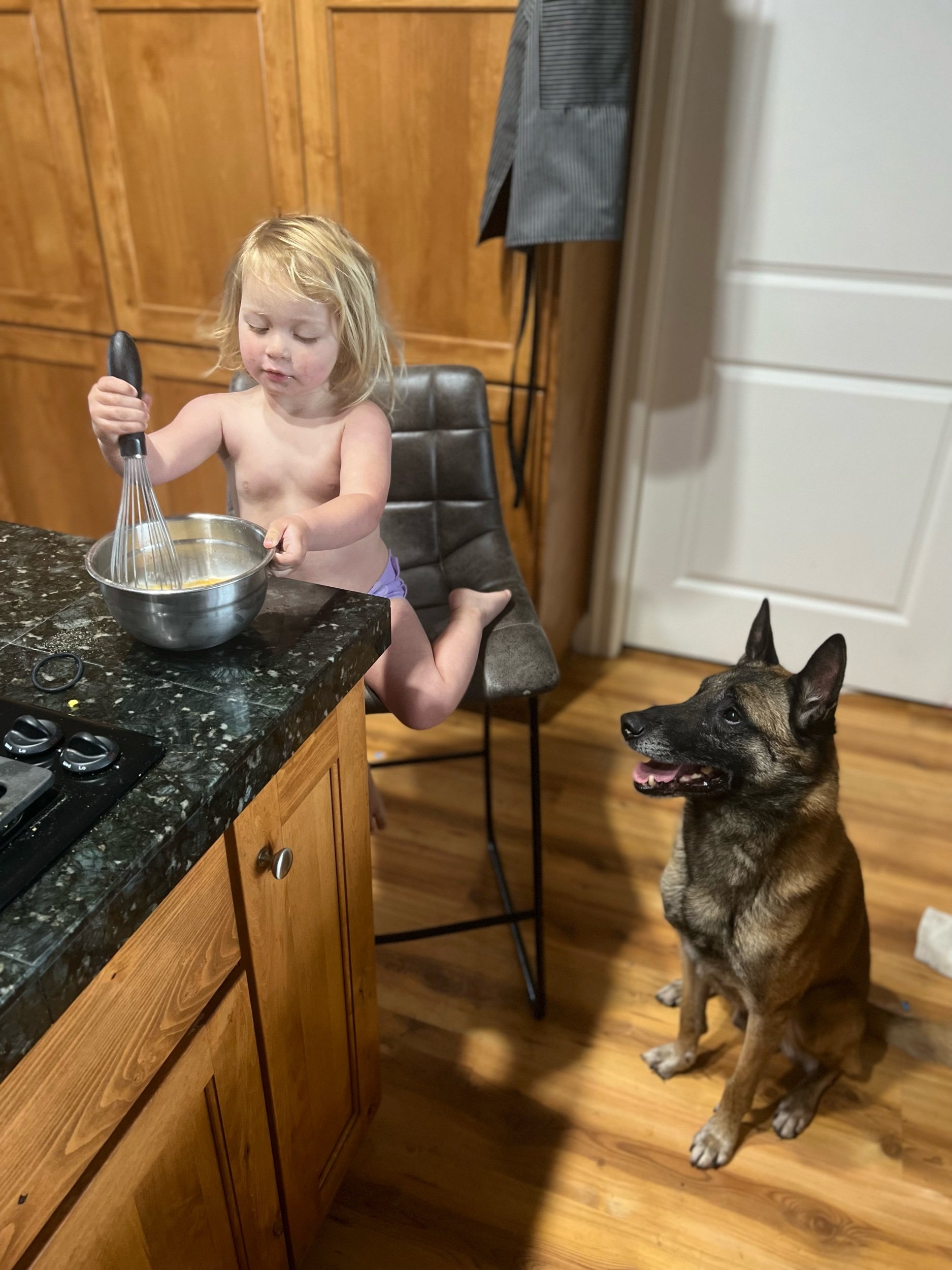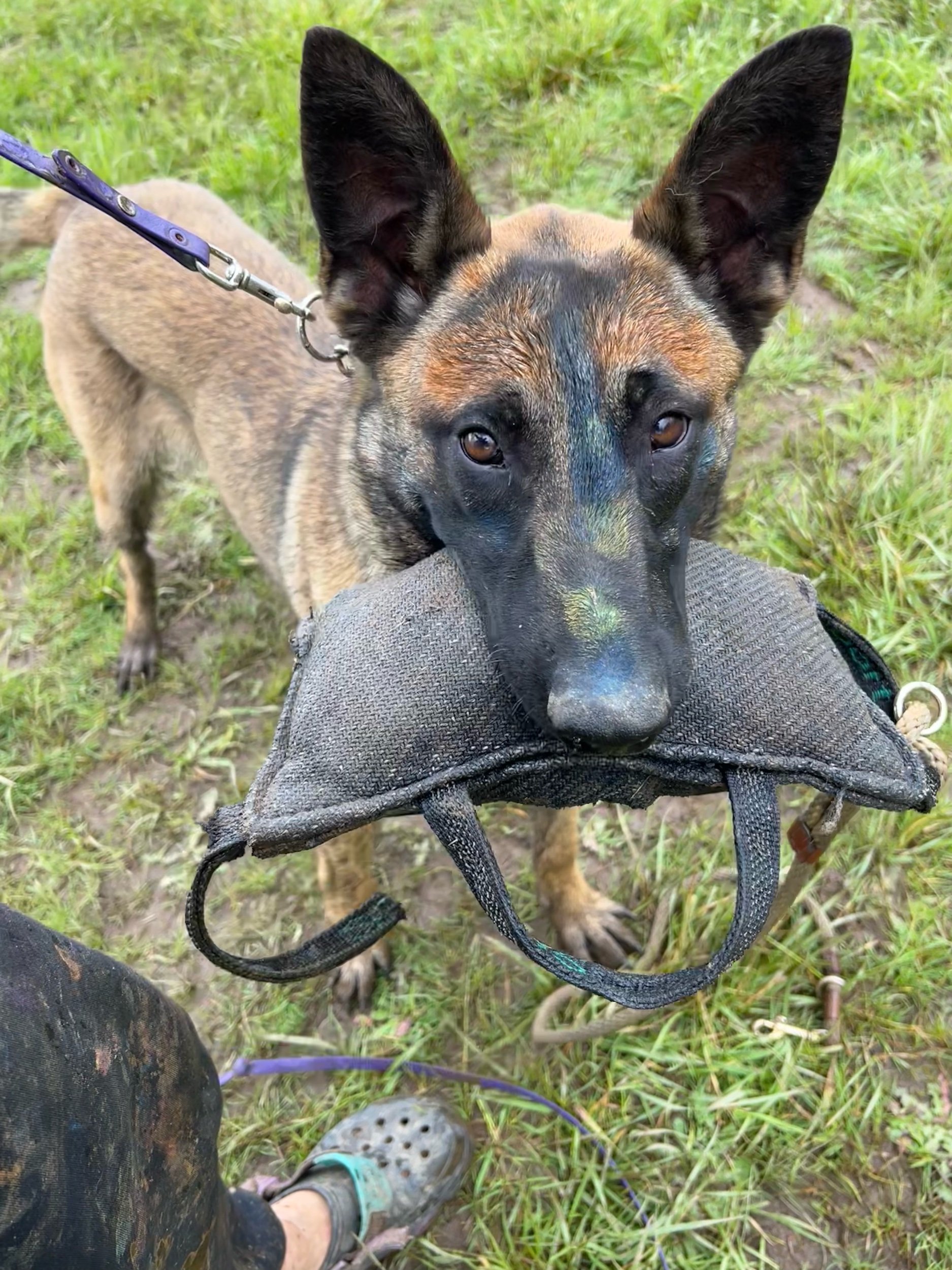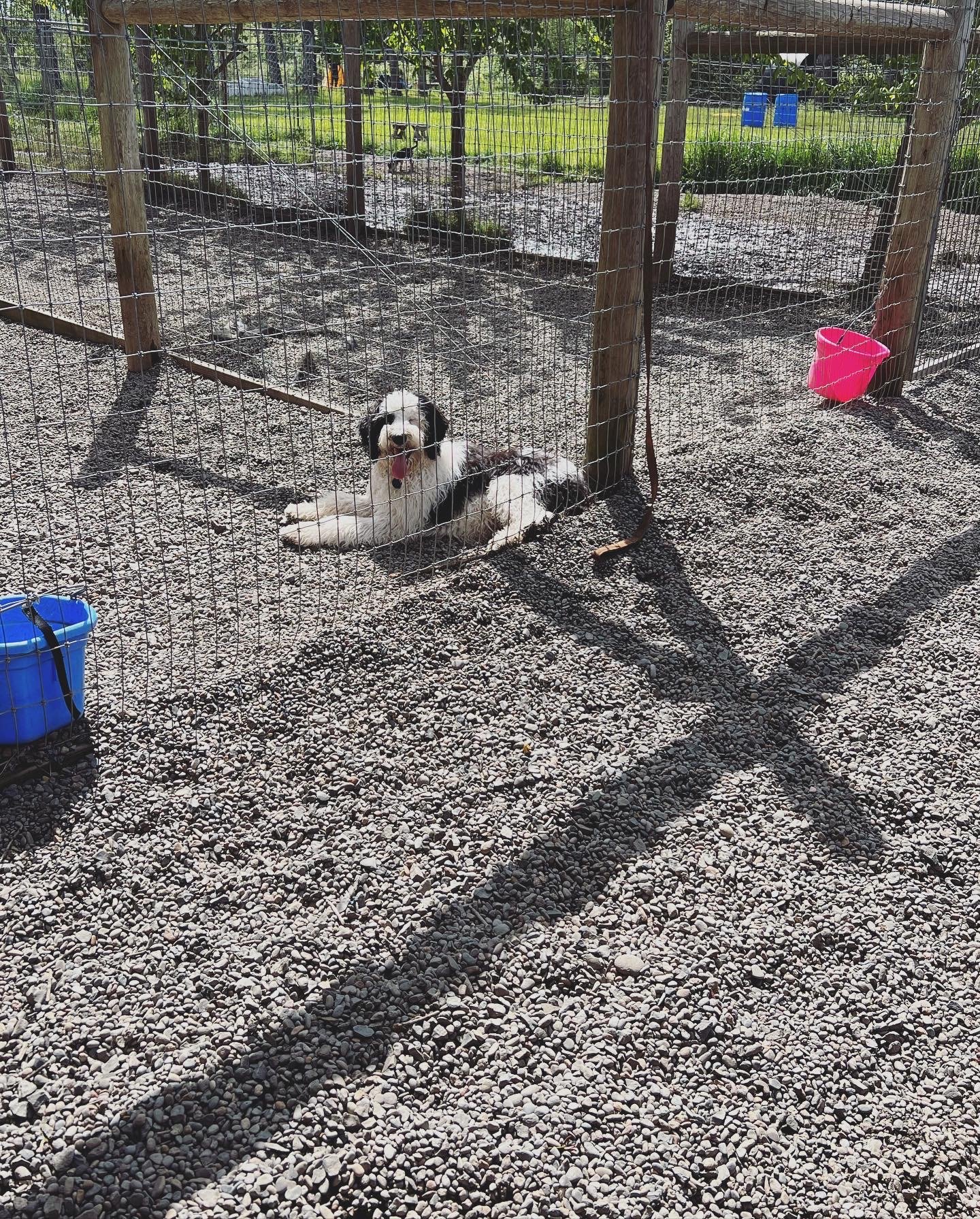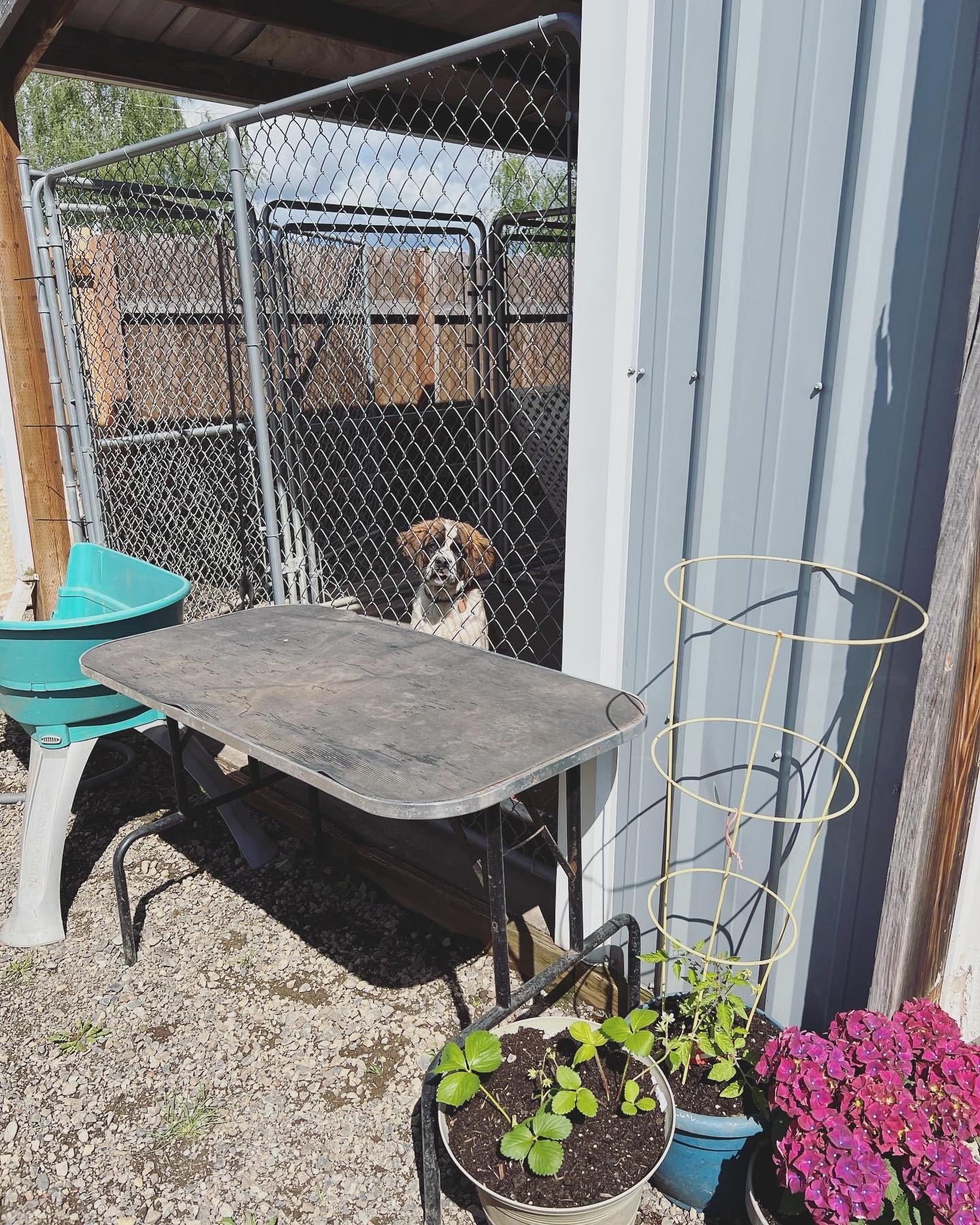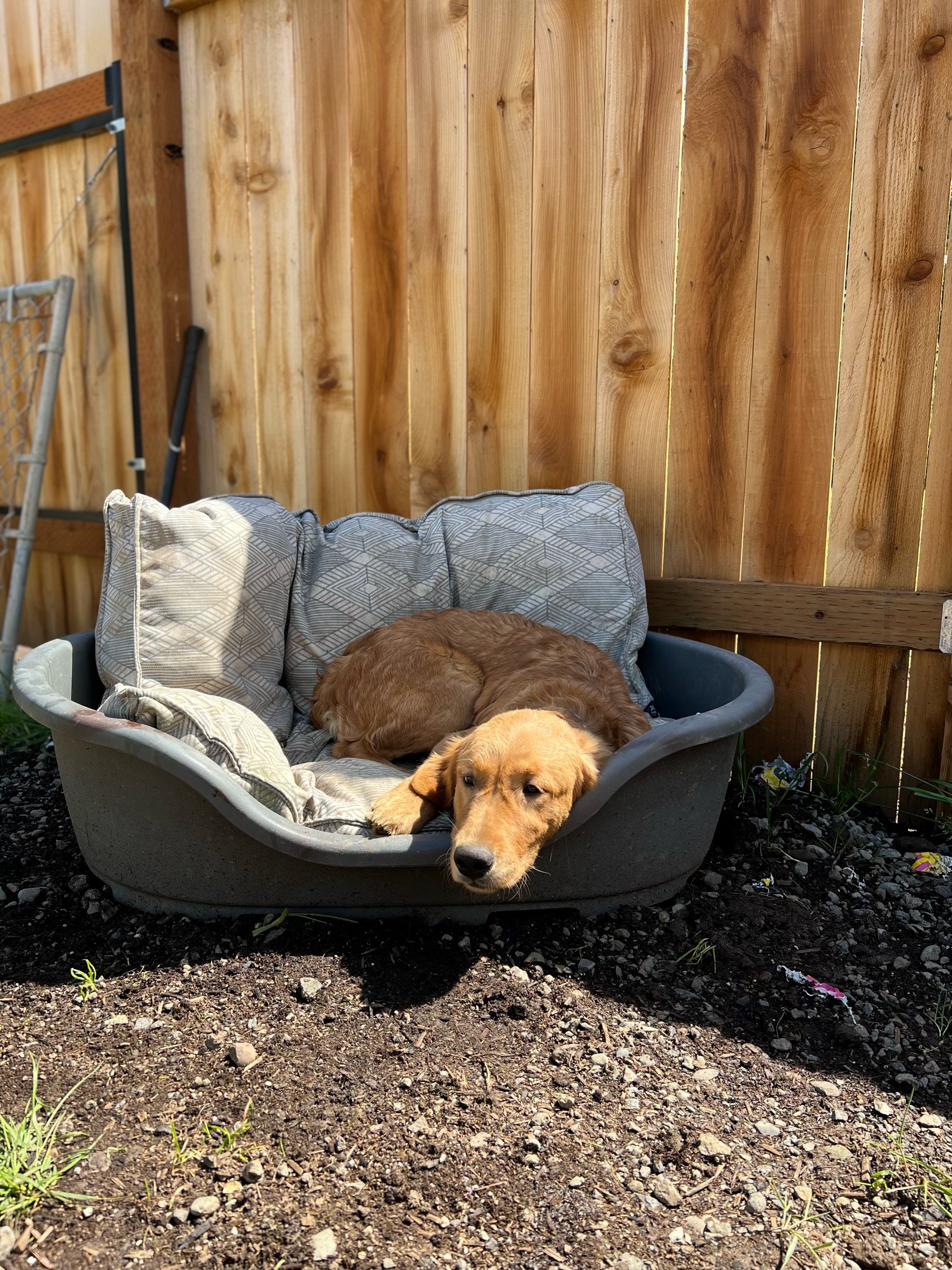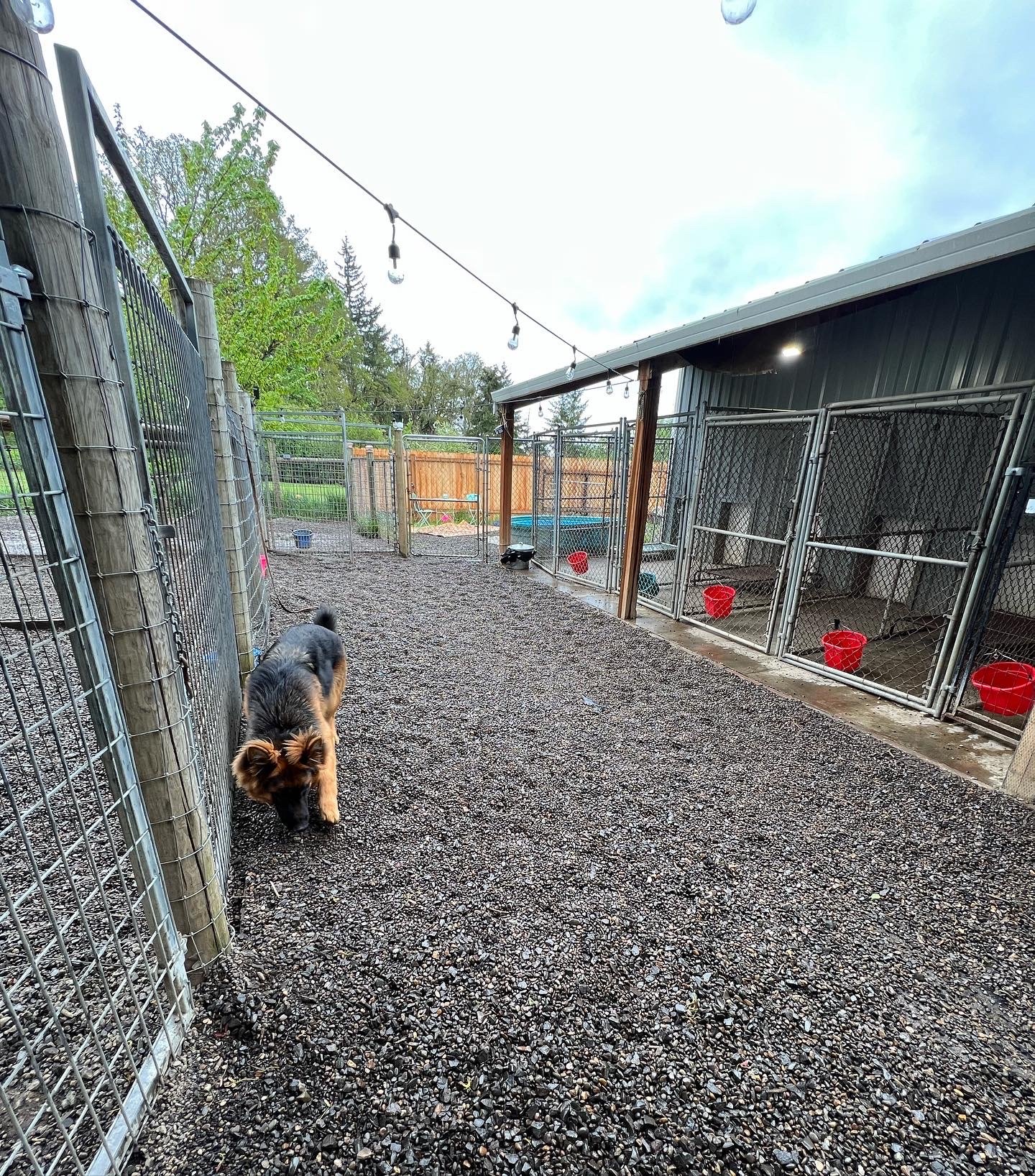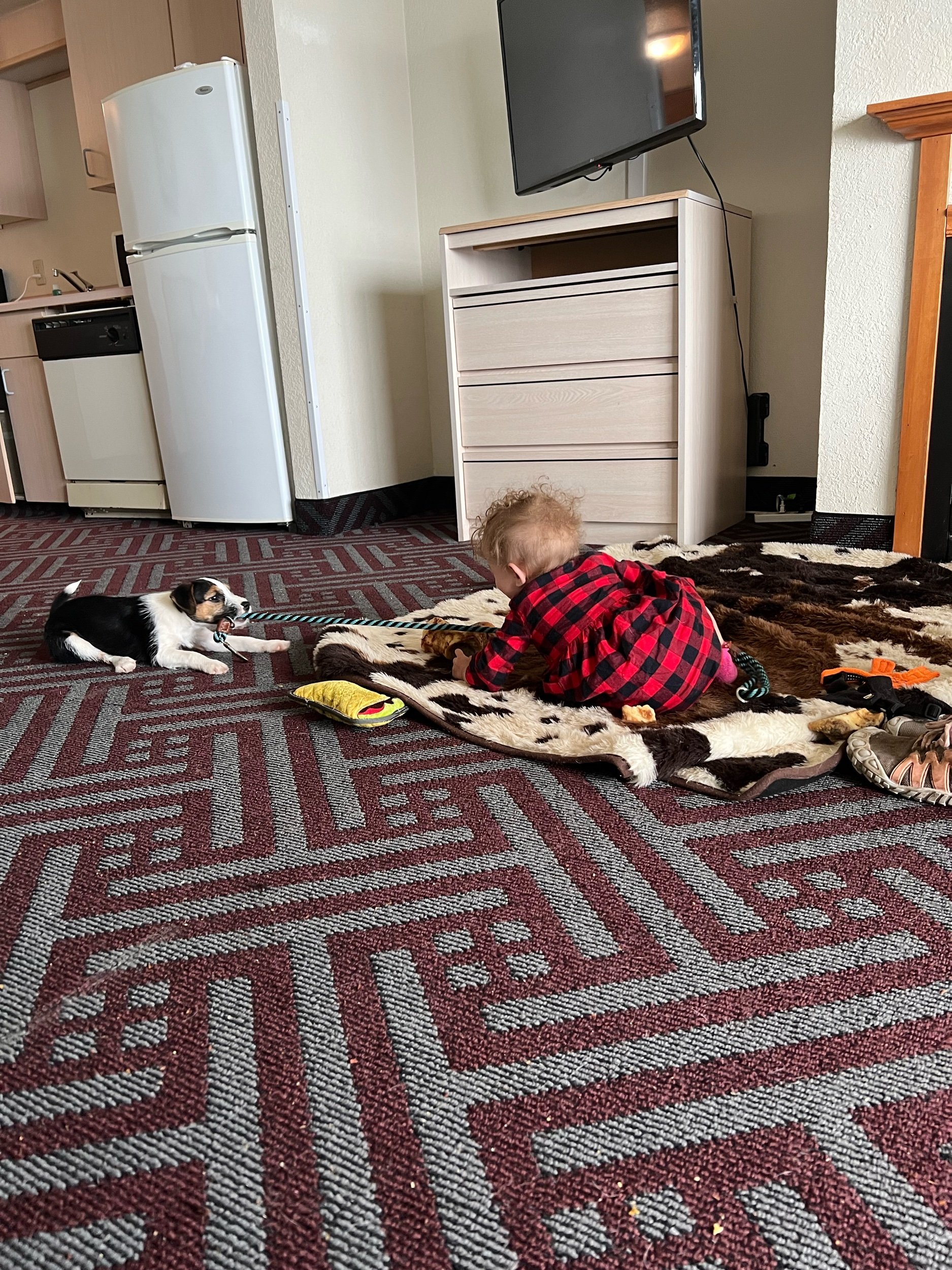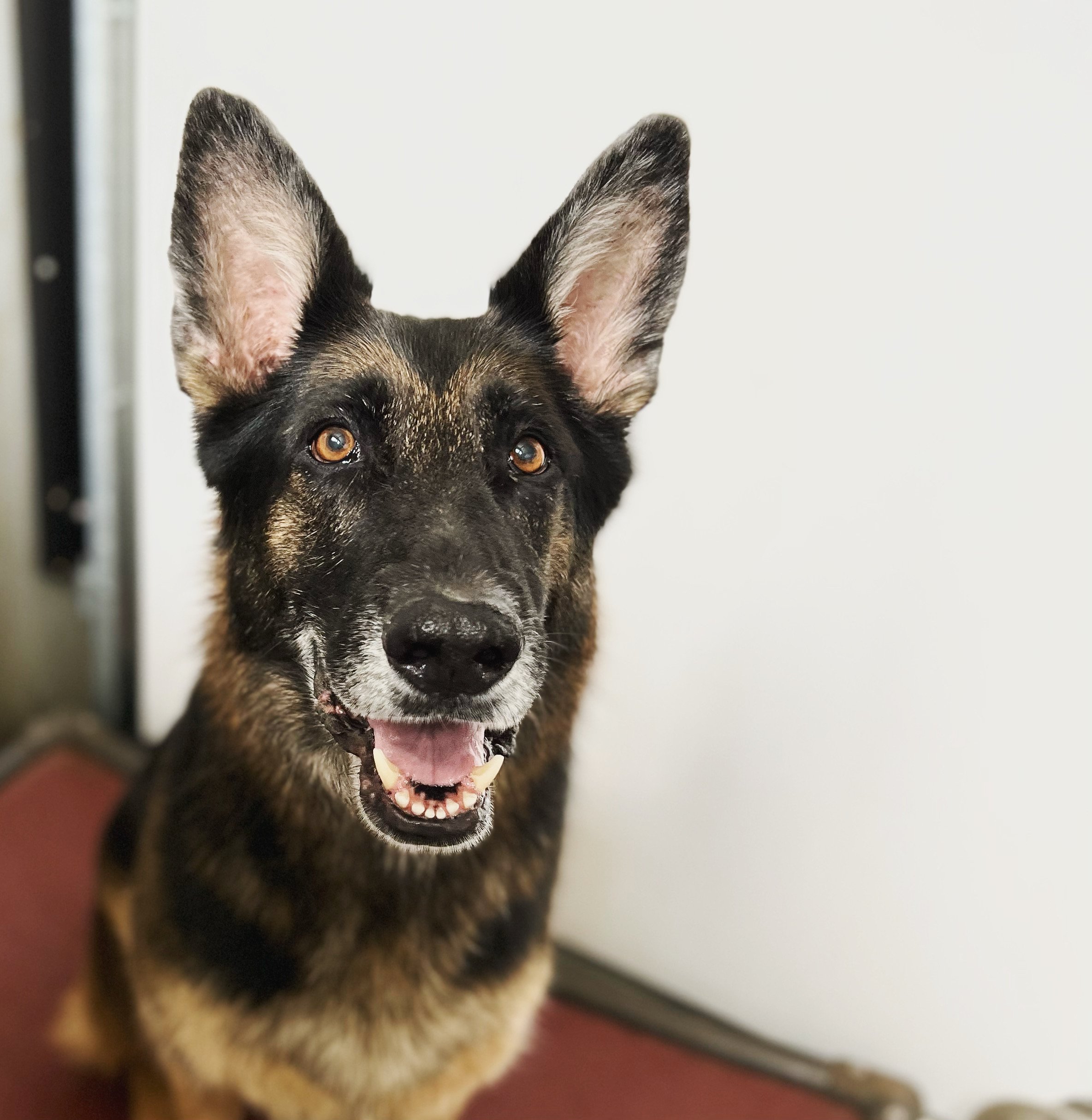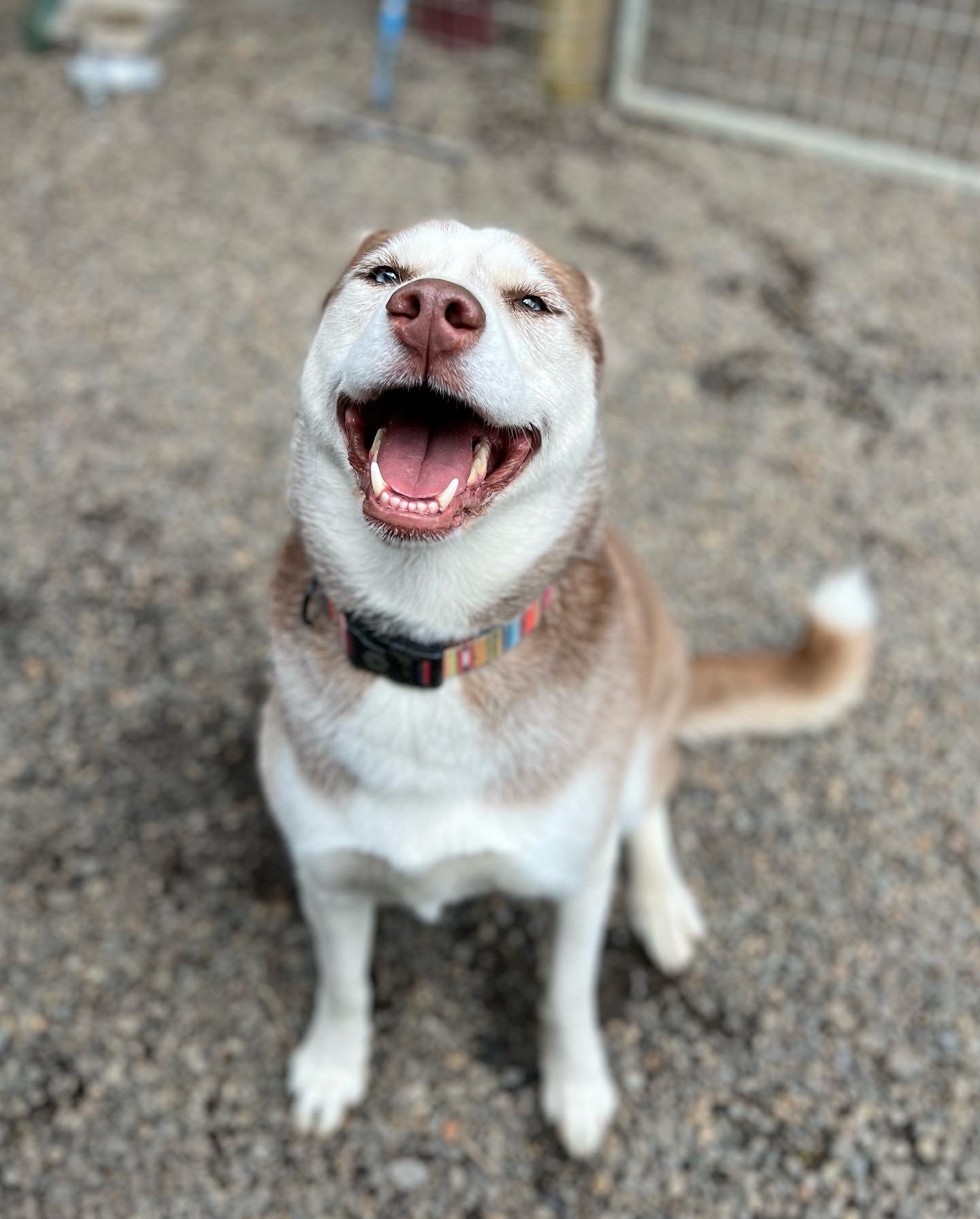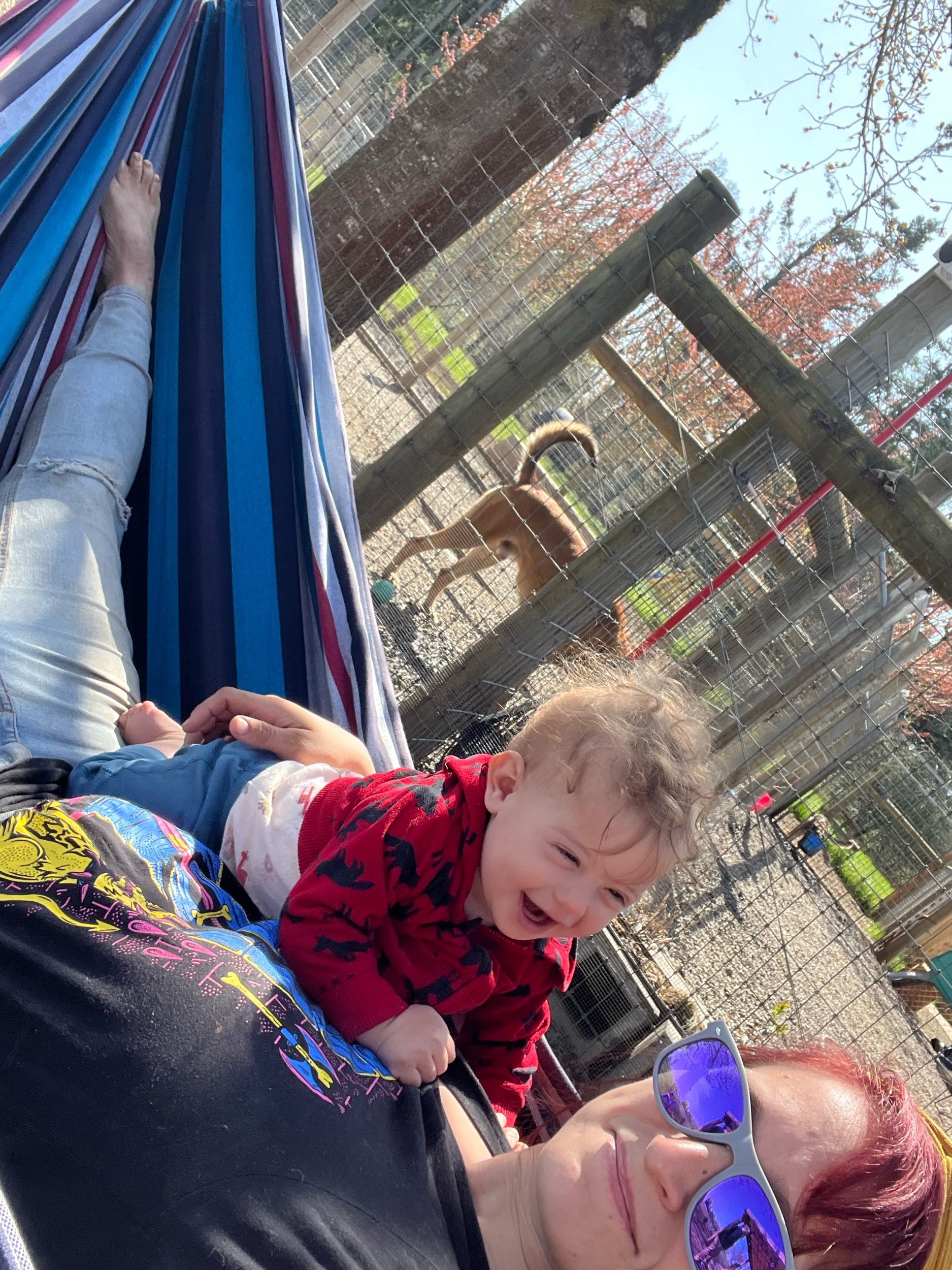Training camp frequently asked questions:
Training methodology:
This is a balanced training facility. This means we utilize all available and humane tools at our disposal to accomplish your goals within the realm of your dog’s ability.
We will take in account what your dogs genetics are as well as your lifestyle and discuss this with you. Not all dogs are capable of the same lifestyle, not all homes are conducive to success with each dog.
We start each dogs program with positive reward training – this means we offer rewards for good choices in the training process. Your dog will dictate what is rewarding and if they come to us without an easily utilized motivation, we will need to begin managing their resources to build value. For example, we may start to use a crate, kennel, or mat stay to add value in our training interactions – being with us is fun in an otherwise (temporarily) under stimulating life. Or we may begin to hand feed their meals and utilize them for food rewards. We may also remove their access to toys or other dogs until we see a marked focus on the handler in training sessions.
In this learning phase we may use management tools such as: a halti, a front clip harness, a prong collar, a slip lead, or other tools which we will train you to use once you go home.
Once we feel the dog has a substantial foundation we will begin our proofing process, this will likely involve positive punishment (corrections) to show the dog what isn’t a good choice, in combination for rewarding for what is a good choice.
In this proofing phase we may use: a prong collar, a slip collar, an electric collar, or other tools which we will train you how to use once you go home.
The long-term goal of all of our programs is a dog who can go out on walks on a flat collar and lives in a good choice habit – limiting your need for daily/exercise based rewards. However, training is a long-term process and we are here to support you in this.
How many dogs do we take a time?
We have two board and train leads. Each lead can take up to 3 dogs at a time.
When you drop off:
We ask that drop off be as calm as possible for the pups benefit. When you arrive you’ll come straight down to the house and ring the bell on the gate between the house and the kennel building. I ask that we unload any gear / food first and then we do a quick hand off and get started. While I am setting up your pups’ stuff in their own space you can get your pup out of the car and walk them a bit to get them comfortable – movement relieves stress. Sooner than later, as to not build up stress, I ask that you say your goodbyes - we always encourage you to tell them you're leaving, and you'll be back - then hand off the leash calmly.
What to bring:
We can provide most everything but there are two things we require:
Food
Chewies / high value busy items for down time when your pup may be stressed
Why?
Sometimes they get picky on food while boarding and it is helpful for us to have their food so we can gauge if it’s a stress reaction or if it is a preference/stomach issue
Sometimes they destroy or soil their bedding at boarding even if they’ve never done that before at home and we recommend allowing us to provide bedding while you keep your bedding clean at home.
Cost:
We require half of your payment up front, the rest must be paid before pick up
How do you know what they’re up to?
Every few days you can expect photo updates of your pup, these may be focused on training sessions or just happy play time
Once a week we will write up a status report, we will try to include a video as well
Every two weeks you will receive a lesson
Where, how long, will be determined by the program and dogs progress. Loosely we plan for:
Week 2 – on site, 1 hour
Week 4 – off site, 1 hour
Week 6 – off site, 2 hours
Week 8 – off site, 2 hours (Behavior Mod only)
Week 10 – off site, 1 hour (Behavior Mod only)
Where will they sleep:
Your pups will sleep in a crate, or a kennel run for safety reasons. Dogs are free minded creatures and often make “never done that before” mistakes. It is up to us to do our part and supervise or management them to the best of our abilities. When we cannot safely supervise them – because we are off site or asleep – we choose to crate, or kennel run them for their protection. To see photos and videos of this location check out our website, to visit this location yourself schedule a time with us (we are currently doing a renovation project and the kennel is closed to visitors – it will be available for on site visits in July, until then we offer photos).
What is a daily schedule?
The daily schedule varies to emulate a real-life experience and help your dog return home as easily as possible. Loosely this is the plan:
6am, wake and first potty break
7a – 9a, playtime in our dog safe yard – this can be playtime with dog friends or solo depending on your dogs needs
9a-12p, walks, training sessions, and feeding / down time
12p-1p, playtime again
1p-4p, walks, training sessions, and feeding / down time
4p-6p, playtime again
6p-9p, walks, training sessions, and feeding / down time
9p-10p, last call, nighttime snacks/chewies, bedtime
How do they ride in the car?
All dogs in our care will ride in the safest crates we can provide unless otherwise working on specific behaviors which require them to be loose in the vehicle.
What should I buy/What comes home with them?
Recommended training collars/Halters for appropriate teams
We will help you decide, case by case
Leash
We recommend Zumi leads for slip lines and biothane (any company but we encourage you to shop local!) for any drag lines (10-30ft for training use)
Cot
We recommend K&H cots, Cato Boards, or Kuranda beds
Please set your dog up for success and use a bed that is raised off the ground, rugs and soft beds can be confusing when the brain is overstimulated and you’re working on place cues.
Treat pouch
We recommend Voila Pets!
Shirt
Tell us your size, we’d love to give you a shirt to wear when training your pup in public.
How many lessons / structures of these lessons:
Every two weeks you will be offered a lesson
Where, how long, will be determined by the program and dogs progress. Loosely we plan for:
Week 2 – on site, 1 hour – dog is primarily handled by trainer
Week 4 – off site, 1 hour – Dog will be handled by both owner and trainer
Week 6 – off site, 2 hour – Dog will be handled by owner
Week 8 – off site, 2 hour (Behavior Mod only) - Dog will be handled by owner
Week 10 – off site, 1 hour (Behavior Mod only) - Dog will be handled by owner
Standard cues:
Name: look at me
Come: come near enough for a collar grab.
Here: come to me and sit in front of me
Sit: sit until I say otherwise
Down: lay all the way down - butt too(!).
With me: this is her loose leash walking cue, it means stay close and do not pull. Her shoulder should be with your thigh.
Easy: a loose leash (not heel) walking reminder when she pulls to ease up on the leash.
Leave it: this means look away from whatever you’re distracted by. The primary use of this command is for reactivity.
Mine: this means drop it.
Switch: switch from one toy to the other.
Chase: let go, back up, let me throw
Place: this means go to your mat and stay there until I say otherwise.
Free: this means exercise complete, go run around and be a dog.
Back: this means stay back and do not move forward, I use this for doorways and to give space.
Touch: this is a command to touch her nose to the palm of a hand.
Get in: direct return to heel position.
Load up: This is a go to your crate cue
Spin Right, Spin Left: A trick we use to refocus the brain
Scatter: This is a de-escalating cue
All Done: Go be a dog, training is over
Will I receive homework?
Yes! You’ll be emailed a full log and packet with a 5 week post camp program designed for long term success.
What class/program next:
This is a great question which will vary per dog and their program, loosely:
Puppy Foundation:
Day Training
Classes:
Basic Obedience
Relationship and Engagement
Intro to agility
Tricks for treats
Good Dog:
Adventure days
Classes:
Canine Good Citizen
Community Canine
New to Nosework
Rally 101
Behavior Modification:
Farm Days
Classes:
Relationship and Engagement
Community Canine
Social Skills for the modern world
New to Nosework
Day Training frequently asked questions:
Coming soon…
Adventure days frequently asked questions:
Coming soon…
